China’s Xi Jinping meets with Henry Kissinger in Beijing
HONG KONG — Chin ese President Xi Jinping met with veteran U.S. diplomat Henry Kissinger in Beijing on Thursday, calling him an “old friend,” Chinese state media reported.
Xi said the visit by Kissinger, who has been to China more than 100 times and recently turned 100, had special significance because of the two “hundreds.”
Kissinger, who was Richard Nixon’s national security adviser, made a secret trip to China to 1971 that laid the groundwork for a historic trip by the president the following year and the formalization of relations between the United States and China in 1979.
“It not only changed the two countries, but also changed the world,” Xi said, according to the state-run broadcaster CCTV.
Xi said the Chinese people value their country’s friendship with Kissinger and the U.S.
“We will never forget our old friend and your historic contribution to promoting the development of Sino-U.S. relations and enhancing the friendship between the Chinese and American peoples,” he said.
Kissinger said it was a “great honor” to visit China again, noting that his meeting with Xi at the Diaoyutai State Guesthouse, where many important diplomatic events are held, was the same place where he met in 1971 with Zhou Enlai, the Chinese premier at the time.
“The relationship between the two countries is related to world peace and the progress of human society,” Kissinger said, according to CCTV.
The U.S. and China, now the world’s two largest economies, have recently experienced some of their worst relations since diplomatic ties were established amid disputes over trade, human rights and the status of Taiwan , a self-governing island that Beijing claims as its territory.
State Department spokesperson Matthew Miller said this week that the Biden administration was aware of Kissinger’s visit to China but that he was acting “under his own volition, not acting on behalf of the United States government.”
Kissinger’s visit to Beijing coincided with one by John Kerry, the U.S. climate envoy , who met with senior Chinese officials but not Xi. Kerry, whose trip marked the first formal top-level climate diplomacy between the world’s two biggest carbon polluters since talks were suspended last year, ended his trip Wednesday without the two countries issuing a joint statement on climate cooperation.
Xi also did not meet with Treasury Secretary Janet Yellen when she was in Beijing this month.
He did meet last month with Secretary of State Antony Blinken during his long-anticipated visit to China, which was postponed from February because of the Chin ese spy balloon incident.
Kissinger also met this week with China’s top diplomat , Wang Yi , and Defense Minister Li Shangfu , who is under U.S. sanctions and had rejected a request from the Pentagon for a meeting with Defense Secretary Lloyd Austin in May on the sidelines of a security forum in Singapore.
“U.S. policy towards China requires Kissinger-style diplomatic wisdom and Nixon-style political courage,” Wang told Kissinger during their meeting Wednesday, according to the official website of the Chinese Foreign Ministry.
Larissa Gao is a fellow on NBC’s Asia Desk, based in Hong Kong.

Henry Kissinger makes surprise visit to China, meets top diplomat

China’s top diplomat hinted Wednesday to former American secretary of state Henry Kissinger, the 100-year-old who was at the heart of the United States’ rapprochement with China half a century ago, that Beijing was nostalgic for the days he was running U.S. foreign policy.
Kissinger is on an unannounced visit to Beijing that coincides with that by another former American secretary of state: John F. Kerry , now the Biden administration’s climate envoy, is in Beijing for talks aimed at kick-starting cooperation between the world’s two biggest polluters.
It also comes on the heels of Secretary of State Antony Blinken’s trip to Beijing last month , when both sides projected positivity after six months of verbal confrontation and military near misses .
But neither has the stature of Kissinger, who remains revered in China for his efforts to forge diplomatic relations between the two countries.
Opinion | My father, Henry Kissinger, is turning 100. This is his guide to longevity.
Kissinger secretly visited Beijing in 1971 to lay the groundwork for President Richard M. Nixon’s historic trip the following year, which led to rapprochement with China. The two countries official recognized each other in 1979.
On Wednesday, Wang Yi, China’s former foreign minister and now its top diplomat, greeted Kissinger, who was using a cane, in Beijing.
“It is impossible to try to transform China, and it is even more impossible to contain China,” Wang told the American, according to a Chinese report of the meeting. “U.S. policy toward China requires the diplomatic wisdom of Kissinger and the political courage of Nixon,” Wang reportedly said.
This came a day after Kissinger met Chinese Defense Minister Li Shangfu, according to a report by the official Xinhua News Agency that was also posted on the ministry’s website.
Blinken, China’s top diplomat discuss rivalry in effort to bolster ties
Military communications in particular are so fraught that Li refused to meet with U.S. Defense Secretary Lloyd Austin at a regional security forum in Singapore last month.
Also in June, Blinken tried to get an agreement to resume direct military-to-military communications between the United States and China. But, he said, Beijing rejected the idea despite the recent dangerous near misses .
Yet in Beijing on Tuesday, Li told Kissinger that he hoped the United States will “work with China to implement the consensus reached by the leaders of the two countries and promote the healthy and stable development of relations between the two countries and their militaries,” Xinhua said.
Li has been under U.S. sanctions since 2018 over China’s purchase of combat aircraft and equipment from Russia’s main arms exporter.
Kissinger responded that both the United States and China should eliminate misunderstandings, Xinhua reported.
“History and practice have repeatedly proven that neither the U.S. nor China can afford the cost of treating each other as opponents,” Kissinger said, according to the Chinese account. “If the two countries go to war, it will not bring any meaningful results to the people of the two countries.”
John Kerry hails China’s ‘incredible job’ on renewables, warns on coal
The State Department was aware that Kissinger was traveling to China, spokesman Matthew Miller told reporters in Washington on Tuesday.
“It actually came up in the meetings that Secretary Blinken had when we were in China,” Miller said. “The Chinese officials mentioned that he was planning to come, as he has done a number of times over the years as a private citizen. I will say he was there under his own volition, not acting on behalf of the United States government.”

China’s Xi welcomes ‘old friend’ Henry Kissinger in Beijing
Visit from the former diplomat who helped normalise relations in the 1970s comes amid efforts to improve US-China ties.
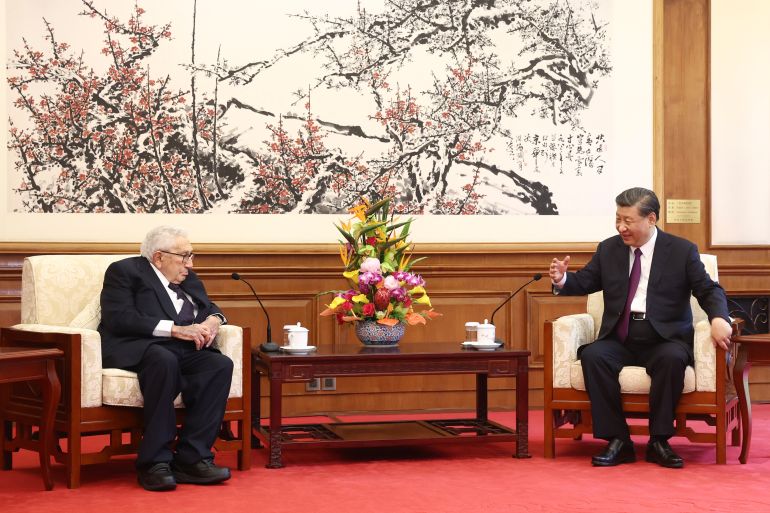
Chinese leader Xi Jinping has welcomed his “old friend”, former United States Secretary of State Henry Kissinger, to Beijing.
The visit on Thursday came as the US and China have increasingly sought to improve their tanking relationship . The 100-year-old Kissinger was instrumental in negotiating for the two countries to normalise ties in the 1970s during the Cold War.
Keep reading
China vs us: competing interests, conflicting narratives, us chip lobby presses biden to refrain from more china curbs, us, china to work ‘intensively’ on climate issues in weeks ahead.
“Chinese people value friendship, and we will never forget our old friend and your historic contribution to promoting the development of China-US relations and enhancing the friendship between the Chinese and American peoples,” President Xi told Kissinger on Thursday, according to state media.
“This not only benefitted the two countries, but also changed the world,” Xi continued. “China and the United States are once more at a crossroads, and both sides must once again make a choice.”
While controversial in the US, Kissinger remains a highly esteemed figure in China. That regard was on full display during the trip and stood in contrast to the reception US Climate Envoy John Kerry received during his visit, which concluded on Wednesday.
Kerry and US Treasury Secretary Janet Yellen, who visited China at the beginning of July, did not meet with Xi while in Beijing. However, current US Secretary of State Antony Blinken did meet the Chinese leader when he visited Beijing in June.
On Tuesday, Kissinger also held talks with Chinese Defence Minister Li Shangfu. Li is currently barred from visiting the US over arms sales he oversaw with Russia.
In a release, China’s defence ministry said Li praised the role Kissinger played in opening up US-China ties. He added that bilateral relations had recently hit a low point because of “some people on the American side who are not willing to meet China halfway”.
Beijing had previously declined an invitation for Li to meet with US Defense Secretary Lloyd Austin on the sidelines of a summit in Singapore this past June. On Thursday, White House National Security Council spokesperson John Kirby said it was “unfortunate” that a “private citizen” like Kissinger was able to meet with Li, but not Austin.
The US and China have seen an array of issues in recent years heighten tensions between the two countries.
Those points of contention include charged rhetoric over Taiwan, the self-governing island Beijing claims as its own, as well as China’s military actions in the East China Sea and South China Sea.
Washington has also expressed concern about Beijing’s increasing “assertiveness” in the Indo-Pacific region, and the two countries have engaged in economic disputes over supply chains and efforts to limit access to critical technologies.
Tensions further flared when then-House Speaker Nancy Pelosi visited Taiwan in August 2022, making her the highest-ranking US official to visit the island in 25 years. China responded to her trip by suspending several lines of dialogue and conducting military exercises near Taiwan.
Relations strained yet again this year, when a diplomatic row erupted over what Washington described as a Chinese surveillance balloon drifting over the US. The friction over the balloon — which was ultimately shot down — caused Blinken to delay a planned trip to Beijing, though China has denied the aircraft was used for spying.
Amid the latest efforts to improve relations, the US and China have both hailed moderate success, while stressing the need to keep communication open.
Kissinger’s visit, conducted in a personal capacity, could offer the opportunity for a more frank discussion about what both sides want from their relations.
Speaking to reporters on Tuesday, US Department of State spokesperson Matthew Miller said officials were aware of Kissinger’s visit, which he described as being “under his own volition, not acting on behalf” of the US.
He added he would not “be surprised if at some point he briefs officials here on his conversations, as he had regularly done in the past”.
In 1971, Kissinger secretly flew to Beijing, kicking off a warming of relations with China’s communist government. The US’s overtures to the then-isolated country contributed to China’s eventual rise as a manufacturing powerhouse and the world’s second-largest economy.
Kissinger was later co-awarded the Nobel Peace Prize for negotiations that led to a ceasefire in the Vietnam War, which ended in 1975.
Still, some critics have considered him a war criminal for his role in secret bombing campaigns in Cambodia and Laos, as well as for supporting coups in Chile and Argentina and turning a blind eye to mass atrocities committed by Pakistan during Bangladesh’s 1971 war of independence.
- International edition
- Australia edition
- Europe edition

Henry Kissinger meets China’s defence minister in surprise visit to Beijing
Ex-US secretary of state’s meeting with Li Shangfu comes amid hopes of improved ties between two countries
The veteran US diplomat Henry Kissinger has met China’s defence minister in Beijing.
According to a readout on Tuesday from the Chinese defence ministry, Li Shangfu said “friendly communication” between China and the US had been “destroyed” because “some people in the United States did not meet China halfway”. Kissinger said he was a “friend of China”, according to the readout.
“Neither the United States nor China can afford to treat the other as an adversary. If the two countries go to war, it will not lead to any meaningful results for the two peoples,” the Chinese statement reported Kissinger as saying.
The surprise visit of the 100-year-old former US secretary of state comes as John Kerry, the US climate envoy, is in Beijing to meet Chinese officials to discuss how the two countries can cooperate on confronting the climate crisis. Kerry is the latest in a string of senior US officials who have travelled to China this summer, after the US secretary of state, Antony Blinken, completed a long-awaited trip in June.
Relations between the two superpowers have been spiralling downwards for months, but there is cautious optimism on both sides that the restarting of official dialogues can build a foundation for improved ties.
Kissinger’s visit, which had not been publicised, is outside the official roster of meetings. It is almost exactly 52 years since his secret visit to Beijing in July 1971, which paved the way for Richard Nixon, the US president at the time, to normalise relations between the US and China. More than half a century on, Kissinger is still seen by many in Beijing as a “friend of China”. In May, state tabloid the Global Times praised Kissinger’s “razor-sharp” mind.
Kissinger has repeatedly warned of “catastrophic” consequences of a conflict between the US and China.
Li has been the subject of US sanctions since 2018, relating to the purchase of combat aircraft from Russia’s main arms exporter, which Beijing cites as a reason for refusing to reopen military-to-military dialogues with Washington. Last month, Li refused to meet his US counterpart, Lloyd Austin, at the Shangri-La Dialogue in Singapore.
China’s foreign ministry did not immediately respond to request for comment.
- US foreign policy
- Asia Pacific
- Henry Kissinger
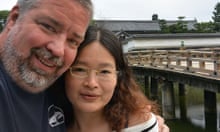
China holds citizen on spying charges after she did ‘admin’ work for US company
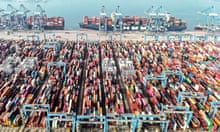
China’s many systemic problems dominate its outlook for 2024
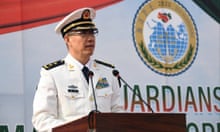
China names former navy chief Dong Jun as new defence minister
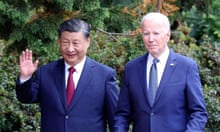
China praises ‘warm’ Xi-Biden meeting in change of rhetoric
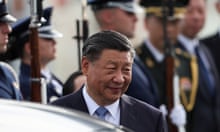
China and US pledge to fight climate crisis ahead of Xi-Biden summit
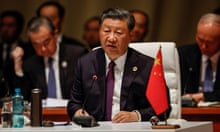
Xi says China willing to cooperate with US as hopes rise for talks with Biden
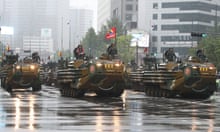
China, Japan and South Korea agree talks to calm fears over US ties

China reportedly extends iPhone ban to more workers as tensions with US rise

Apple shares fall after China reportedly bans iPhone use by government officials
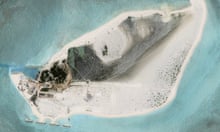
China building airstrip on disputed island, satellite images suggest
Most viewed.
- Share full article
Advertisement
Supported by
Guest Essay
Kissinger Was Right About China, and He Still Is

By David Daokui Li
Dr. Li, a professor of economics at Tsinghua University, wrote from Beijing.
In the cold winter of 1972, a schoolteacher in a poor Chinese village asked his whole class: “The U.S. president, Nixon, and his adviser Dr. Kissinger will be in China. What should we do?”
Then 8 years old, I was a good student and had just finished my homework — writing down 50 times in Chinese characters the omnipresent political slogan “Down with the American imperialists! Down with the Soviet revisionists! Long live Chairman Mao!”
So I quickly popped up with an answer: “Arrest them, because they are our enemies.”
Within a few years, I realized how wrong I had been. The American outreach crafted by Henry Kissinger helped catalyze decades of complex political changes in China, leading to an era of reform and opening that eventually lifted 800 million people out of poverty and opened the eyes and minds of even more people.
All of that greatly affected my life, along with the lives of millions of other young students. Five years after Mr. Kissinger’s visit, China reopened colleges after being effectively closed for a decade. Through hard work and good luck, I was able to enter college and later went to the United States to obtain my Ph.D. from the same university where Mr. Kissinger received his. What a magical change for a schoolboy who had just been copying down party propaganda. The simple lesson I learned that day? Don’t be tricked by political slogans.
I can think of no other political figure or thought leader today who helped to initiate as monumental a positive impact on a foreign country as Mr. Kissinger. Although his death at the age of 100 last week has triggered polarized reactions in America, it has aroused overwhelmingly warm sentiments in China’s normally harsh internet space. Grateful articles by private citizens in his memory have gone viral. As the debate rages on over his legacy, I believe one thing is indisputable: Mr. Kissinger was right about China.
Forty years after I called for Mr. Kissinger’s arrest, I found myself standing nervously next to him on a stage facing a live audience of 2,700 people in Toronto for the Munk Debate, which also included Niall Ferguson and Fareed Zakaria. The debate topic: “Be it resolved, the 21st century will belong to China.” Mr. Kissinger took the con side of the argument, and I was pro. I wished I had been on his side. Not only because I continued to feel guilty about suggesting he be thrown into a Chinese jail but also because I disagreed with the proposition I was being asked to argue; I have never believed that China will own the world.
To the disappointment of my debate teammate, Mr. Ferguson — but to my secret satisfaction — we lost. It was clear that Mr. Kissinger’s authority on and command of the topic, coupled with Mr. Zakaria’s articulate presentation, gave their team a significant advantage. Most of the audience left the debate less convinced that the 21st century would belong to China.
Mr. Kissinger’s approach to China was formed by his lifelong study of world history and politics. He had a deep understanding of the interplay among big powers and an inherent understanding of China’s perspective on the world. Underneath it all, he had an unwavering loyalty to America’s best interests.
There are three important lessons to be gleaned from Mr. Kissinger’s approach to China. First, China is not a great threat to the United States. China simply does not appear to have the global ambition, institutional capacity, historical tradition or ideological clarity to replace and behave like the United States of today. Its geographical position doesn’t help. During the Toronto debate, Mr. Kissinger said rhetorically: Look at a map of the world. China is bordered by 14 countries. How many of them can China count on as stalwart friends? How much energy does China have left to spend on managing global affairs after coping with its neighbors? The United States, by contrast, has only two.
Second, no one can change China from the outside. Its size and history make this impossible. You may work with China and help its leaders initiate domestic changes, but you can never change it from the outside. Mr. Kissinger argued repeatedly, including in his book “On China,” that China has thousands of years of history of sophisticated political institutions that continue to exist today. It is impossible and counterproductive to push China to change unless the forces of change come from inside. In fact, as early as the late 1960s, Chairman Mao had already begun thinking about allying with the United States to better resist the growing ambitions of the Soviet Union. Had Mao not made up his mind to work with Washington, Mr. Kissinger could never have made his historic trip to China in 1971.
Third, the United States must treat China as an equal partner to resolve global challenges, including nuclear nonproliferation, climate change, proper governance of artificial intelligence and sustainable development. This point is more relevant today than ever: China is now the world’s largest producer of solar panels and windmills , a global leader in artificial intelligence research and the only nation operating its own crewed space station.
In recent years, many American political leaders have begun to disagree with Mr. Kissinger’s approach, especially the first one. As a result, U.S. foreign policy has become increasingly hawkish toward China. This is very unfortunate. Yes, China has become more powerful and gained more international influence. But Beijing does not participate in any international military conflict. To my knowledge, China has not trained any top foreign officials in the Chinese Communist Party’s Central Party School and has no plan to change in this regard. Continuing to treat China as a growing threat is a major diversion of U.S. political energy, to say the least.
Mr. Kissinger was a refugee of the Nazi regime and unquestionably loyal to the United States. His strategies served American interests: The United States won the Cold War and enjoyed the peace dividend with years of economic prosperity. Of course, China, too, has risen fast, but just because China has done well does not mean that the United States is losing. Don’t blame Mr. Kissinger’s China strategy for America’s domestic problems today. Just focus on solving them.
Reviewing the past helps one to understand the present, Confucius said. Re-examining Mr. Kissinger’s views about China upon his death would be a good learning exercise for American statesmen today.
Mr. Kissinger was right about China and still is.
David Daokui Li is a professor of economics at Tsinghua University and the author of the forthcoming “China’s World View: Demystifying China to Prevent Global Conflict.”
The Times is committed to publishing a diversity of letters to the editor. We’d like to hear what you think about this or any of our articles. Here are some tips . And here’s our email: [email protected] .
Follow the New York Times Opinion section on Facebook , Instagram , TikTok , X and Threads .
China’s Xi gets nostalgic with ‘old friend’ Henry Kissinger
Former us diplomat pays latest visit to beijing shortly after celebrating 100th birthday.
China's president Xi Jinping speaks with former US secretary of state Henry Kissinger during a meeting in Beijing on Thursday. Photograph: CNS/AFP via Getty Images
Chinese president Xi Jinping told Henry Kissinger that “old friends” like him will never be forgotten, striking an easy tone in their meeting in China’s capital on Thursday, amid efforts by Beijing and Washington to mend frayed ties.
“Once again, China and the US are at a crossroads of where to go from here, and once again, both sides need to make a choice,” Mr Xi told the former US diplomat.
Mr Kissinger played a key diplomatic role in normalising ties between Washington and Beijing in the 1970s when he served as secretary of state and national security adviser in the administrations of Presidents Richard Nixon and Gerald Ford.
Noting that Mr Kissinger has just celebrated his 100th birthday and has visited China more than 100 times, Mr Xi said his visit this time was of “special significance”.
Who speaks for Jews in Germany?
:quality(70)/cloudfront-eu-central-1.images.arcpublishing.com/irishtimes/2GTFGWVJWJHV5N25CEEZ2JVN6Y.jpg)
Sneaky sexually suggestive filming: Britain is in the grip of a social media trend that raises uncomfortable questions
:quality(70)/cloudfront-eu-central-1.images.arcpublishing.com/irishtimes/LAMN7X5OD5E6HOPDH54TB5ULIE.jpg)
Juror’s toothache bites into Trump hush money trial
:quality(70):focal(3959x2307:3969x2317)/cloudfront-eu-central-1.images.arcpublishing.com/irishtimes/BDPFAGB4J5TSU4JWR33GOCLET4.jpg)
Losing its religion: Catholic Poland looks to Irish example as it moves towards secularism
:quality(70)/cloudfront-eu-central-1.images.arcpublishing.com/irishtimes/THEU5WAP2RJOD3NO52GBYPKDRY.jpg)
“The Chinese people never forget their old friends, and Sino-US relations will always be linked with the name of Henry Kissinger,” Mr Xi told him at the Diaoyutai State Guesthouse, where foreign dignitaries are often received.
Mr Kissinger, who is widely respected in China and has paid regular visits since leaving office, said he was grateful Beijing had arranged the meeting in the building where he had met with Chinese leaders during his first visit.
“The relationship between our two countries is a matter of world peace and the progress of human society,” China’s official news agency Xinhua cited Mr Kissinger as saying.
“Under the current circumstances, it is imperative to maintain the principles established by the Shanghai Communique, appreciate the utmost importance China attaches to the one-China principle, and move the relationship in a positive direction,” Mr Kissinger said in the meeting.
His visit to China comes at a time when the two superpowers are embarking on a course to stop their relations, already at historic lows, from sinking further.
“China is willing to discuss with the US side the right way for the two countries to get along and promote the steady progress of China-US relations,” Mr Xi said.
China and the US could achieve mutual success and prosper together, he added, stressing the key was to follow the principles of “mutual respect, peaceful coexistence and win-win co-operation”.
Mr Kissinger also met with China’s top diplomat Wang Yi and with defence minister Li Shangfu on his trip, which Washington said was a private visit.
Tensions between the world's two largest economies have heightened over a range of issues, including the war in Ukraine, Taiwan and trade curbs.
Washington has tried to reestablish communication channels on these and other issues through recent high-profile diplomatic visits.
US presidential envoy John Kerry concluded lengthy talks with Beijing on fighting climate change on Wednesday and secretary of state Antony Blinken went to Beijing last month. – Reuters
(c) Copyright Thomson Reuters 2023
IN THIS SECTION
China accuses us of double standards on human rights, narendra modi accused of ‘hate speech’ after comments about muslims, ten killed after malaysian navy helicopters collide in mid-air, more than 100,000 people evacuated from homes in southern china due to floods, islamic state terror group draws half its recruits from tiny tajikistan, ‘i’m alone pretty much all the time. the older i become, the less hopeful i am this will change’, michael d higgins: ‘i’m fine now. what i had was a form of mild stroke’, aoife johnston inquest: limerick hospital staff describe being ‘haunted’ by teenager’s death, more than 80% of asylum applicants now coming from uk via northern ireland, says mcentee, jeffrey donaldson due in court charged with historical sexual offences, latest stories, women’s prize for fiction: anne enright and claire kilroy shortlisted, aib trims €625m bond yield amid strong investor demand, your top stories on wednesday: higgins had ‘mild stroke’; more than 80% of asylum applicants coming from north, britain’s lloyds bank reports 28% slide in first quarter profit on income squeeze, harris shows he can project empathy in stardust apology.
- Terms & Conditions
- Privacy Policy
- Cookie Information
- Cookie Settings
- Community Standards

Search form
You are here, getting to beijing: henry kissinger's secret 1971 trip.
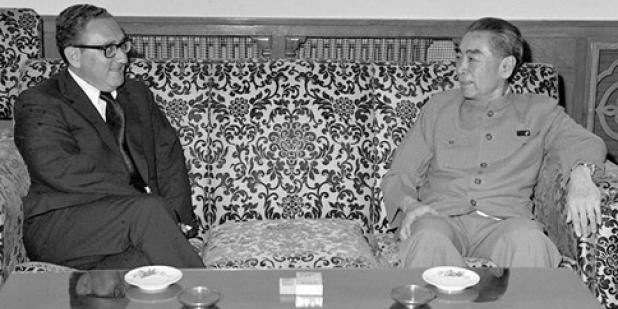
Originally published in July 2011 and updated in February 2022.
As a candidate and in press conferences as president, Richard Nixon argued that the United States and the world would benefit from engaging China. He felt this was intrinsicly important because of China's size and inevitable importance. Nixon also saw China as a useful counterbalance to the Soviet Union. From the first days of his presidency he sought to signal China's leaders that he was willing to talk. The Americans sent private signals through Paris, Warsaw, and via the leaders of Romania and Pakistan. The documents summarized and linked to below detail these efforts which ultimately produced Henry Kissinger's secret trip to Beijing July 9-11, 1971. Kissinger, Nixon's National Security Advisor, flew to Beijing from Pakistan. His meetings there produced an agreement that President Nixon would visit China. Nixon went in February 1972.
These documents are part of the USC U.S.-China Institute's collection of speeches, reports, memos, and images relating to U.S.-China ties. Click here to see other materials. Most of these documents have been declassified over the past decade ( click here for National Archives press release). The Kissinger trip was discussed in the institute's Talking Points newsletter.This compilation is by Clayton Dube. Another compilation (" Getting to Know You ") covers preparations for the Nixon trip, the trip itself, and follow-up exchanges.
The Aim | Sending Signals | China Accepts | Kissinger-Zhou Meetings | Nixon Announcement
October 1967
Candidate Richard Nixon wrote in Foreign Affairs , "we simply cannot afford to leave China forever outside the family of nations, there to nurture its fantasies, cherish its hates, and threaten its neighbors. There is no place on this small planet for a billion of its potentially most able people to live in angry isolation."
January 20-21, 1969
During one of his many meetings during his first two days as president, Richard Nixon wrote this note: “Chinese Communists: Short range—no change. Long range—we do not want 800,000,000 living in angry isolation. We want contact ... [want] China—cooperative member of international community and member of Pacific community.” ( State Department, Office of the Historian )
February 1, 1969
President Nixon wrote to Henry Kissinger, his National Security Advisor. He wrote that Kissinger's report the day before mentioned "interesting comments" on China from a Polish source, Nixon wrote, "I think we should give every encouragement to the attitude that this Administration is 'exploring possibilities of raprochement with the Chinese.' This, of course, should be done privately and should under no circumstances get into the public prints from this direction. However, in contacts with your friends, and particularly in any ways you might have to get to this Polish source, I would continue to plant that idea." ( State Department, Office of the Historian )
February 5, 1969
Henry Kissinger notified the State and Defense departments and the Central Intelligence Agency that the National Security Council has been directed to prepare a study on U.S. relations with China, to include alternative approaches and risks. ( State Department, Office of the Historian )
August 21, 1969
President Nixon visited Pakistan in July 1969. He met with President Yahya Khan. This memorandum from National Security Council staffers Lindsey Grant and Hal Saunders to Henry Kissinger addresses efforts to reach the Chinese through Pakistan. They passed along word from an American diplomat in Pakistan that, "The Pakistanis are working in the belief that President Nixon told President Yahya that the US wished to seek an accommodation with Communist China and would appreciate the Pakistani's passing this word to Chou En-lai and using their influence to promote this. Yahya is apparently debating whether to call in the Chicom Ambassador to convey the message or whether to wait until he sees Chou Enlai, probably some months hence." Kissinger wrote on the memo, “This is to be strictly WH matter. I want no discussion outside our bldg." ( State Dept. memo on Khan's conversation with Zhou Enlai, State Department, Office of the Historian )
August 27, 1969
CIA Director Richard Helms told the press that Soviet officials were approaching foreign governments to ask how they would respond to a preemptive strike against China's nuclear forces. In fact, Boris Davydov, Second Secretary at the Soviet Embassy met on August 18 in Washington with William Stearman, a member of the White House National Security Council staff. Stearman reported "Davydov asked point blank what the US would do if, the Soviet Union attacked and destroyed China's nuclear installations... He then rephrased his original question by asking: 'What would the US do if Peking called for US assistance in the event Chinese nuclear installations were attacked by us? Wouldn't the US try to take advantage of this situation?'" ( Click here to read Stearman's report .) The threats ultimately caused China to negotiate with Moscow and to continue to look to forge connections to Washington.
August 28, 1969
National Security Council staffer Hal Saunders reported on his meeting with Pakistan's Ambassador to the U.S. Agha Hilaly. Saunders wrote to Henry Kissinger that he met Hilaly in order to clarify two points: "a. The President did not have in mind that passing this word was urgent or that it required any immediate or dramatic Pakistani effort. He regards this as important but not as something that needs to be done immediately.... b. What President Nixon had in mind was that President Yahya might at some natural and appropriate time convey this statement of the U.S. position in a low-key factual way." He reported he told Hilaly that Kissinger was to be the point of contact on this matter (meaning there should be no contact with the State Department or others). ( State Department, Office of the Historian )
September 9, 1969
Walter Stoessel, U.S. Ambassador to Poland, summarized a meeting he had at the White House with President Nixon and Henry Kissinger. Stoessel wrote that Nixon asked how he was able to reach out privately to Chinese officials in Warsaw. He noted that Nixon directed him to make contact with a top Chinese representative at a reception somewhere. Stoessel wrote that he was to "say that I had seen the President in Washington and that he was seriously interested in concrete discussions with China." Stoessel had trouble actually meeting the Chinese Chargé until December. ( State Department, Office of the Historian )
October 16, 1969
Henry Kissinger reported to President Nixon on a meeting he had with Pakistan's Ambassador Hilaly. Hilaly told him that Pakistani President Yahya Khan would meet with Chinese Premier Zhou Enlai early in 1970. Hilaly asked if there was something specific Yahya could tell Zhou. Kissinger wrote that he told Hilaly he needed to check with you, but also "[I]f President Yahya were communicating with the Communist Chinese Ambassador, he might say confidentially that the United States is removing two of its destroyers from the Formosa Straits.( State Department, Office of the Historian )
December 2, 1969
Secretary of State William Rogers wrote to President Nixon to advocate for continued relaxation of measures against China. He thought this might be helpful as a wedge between the Soviet Union and China.Rogers reported that "there have been signs of moderation in Peking's foreign policy stance including—in private encounters—toward the U.S." Rogers listed a number of measures that could be taken to send positive signals to China's leaders. These included loosening economic restrictions, including the purchase of American farm products.Nixon accepted the recommendations and changes were announced on December 19. ( State Department, Office of the Historian )
February 20, 1970
National Security Council staffer Alexander Haig wrote on behalf of Henry Kissinger to President Nixon that Chinese representatives at the Warsaw talks said "that if we wished to send a representative of “ministerial rank or a special Presidential envoy to Peking for the further exploration of fundamental principles of relations” between the US and China, they would be prepared to receive him." ( State Department, Office of the Historian )
February 23, 1970
Henry Kissinger wrote to President Nixon to report an exchange with Pakistan's President Yahya via Ambassador Hilaly. Yahya told Kissinger that the Chinese were encouraged by U.S. initiatives, but they did not want discussions to signal Chinese weakness or fear. Kissinger told Yahya to tell the Chinese that press and other speculation could be avoided by working directly with the White House, Kissinger wrote, When matters are in formal diplomatic channels, it is not so easy for us to maintain total discretion because too many people see what is happening. We would therefore be prepared to open a direct White House channel to Peking which would not be known outside the White House and on which we could guarantee total security," ( State Department, Office of the Historian )
March 7, 1970
Henry Kissinger reported that Taiwan President Chiang Kai-shek had written to President Nixon to oppose the approach the U.S. had taken towards China in the Warsaw talks. ( Click here for Kissinger's report.) Nixon's March 27 response to Chiang's letter began, "... I know of your deep distrust of Communist China's motives. In my own evaluation of Communist China, I do not ignore the legacy of the past, nor do I ignore the threat which the Chinese Communist regime may pose in the future." At the same time, Nixon told Chiang, "I would be remiss in my duty to the American people if I did not attempt to discover whether a basis may not exist for reducing the risk of a conflict between the United States and Communist China...." ( State Department, Office of the Historian ) In April, Chiang's son, Chiang Ching-kuo met with Kissinger and others to discuss the situation. Chiang Ching-kuo was at the time Taiwan's vice-premier.The Warsaw talks sputtered out due to scheduling problems, issues related to the Vietnam War, and the opening of other channels of communication (via Paris and Pakistan).
July 9, 1970
Henry Kissinger reported to President Nixon that the Chinese military tried to intercept an American aircraft gathering intelligence 100 miles off the China coast. This, Kissinger noted, came as a surprise. He wrote, "Had they succeeded, they would have finished off the slight movement toward a Sino-U.S. thaw. In doing so, they would have nullified the 'U.S. option' which they have been developing since their confrontation with the U.S.S.R. began." Kissinger speculated that someone in the Chinese leadership did want to damage the nascent relationship. He wrote that intelligence efforts should continue or the Chinese would learn that "a hard line works best with us." ( State Department, Office of the Historian ) On July 31, Kissinger was told there were ongoing struggles within the Chinese leadership and that it was unclear who was rising or falling. ( State Department, Office of the Historian )
Ca. September 12, 1970
This is a memorandum from Henry Kissinger to President Nixon responding to comments President Nixon made on a September 9 memo. Nixon asked Kissinger to try again to reach Chinese officials . Kissinger confirmed that in June 1970 the U.S. had prepared an offer to meet with Chinese officials. He wrote, though, that while General Vernon Walters had told Chinese contacts that he had a message to convey, he had not yet been able to actually convey the message. The document includes the September 9 briefing with Nixon's handwritten comments. Click here to read the document .
October 1, 1970
American journalist Edgar Snow and his wife joined Chairman Mao Zedong atop Tiananmen during the National Day parade. Snow had interviewed Mao in Shaanxi in 1936 and published what Mao told him about himself and the Communist Party's aims in Red Star Over China in 1937. Snow had reported on 1960, 1964 and 1965 as well ( click here to see a clip of him speaking with Zhou Enlai about U.S.-China relations).
October 25, 1970
Henry Kissinger summarized of a meeting between President Nixon and President Yahya Khan of Pakistan. Nixon asked about Yahya's plans to visit Beijing. He told Yahya that he was willing to send a representative to some third party capital to open communications with Beijing. Click here to read the document.
October 31, 1970
Henry Kissinger reported to President Nixon on a meeting he had with Romanian President Nicolae Ceausescu in Washington. Kissinger said he told Ceausescu that the U.S. wanted to open communications with China and that the U.S. government did not believe it had "long-term clashing interests." Ceausescu said he would pass this along to the Chinese. Click here to read the document.
December 10, 1970
Henry Kissinger provided President Nixon with a summary of the status of "Chinese Communist Initiative." It included a report from the Pakistani ambassador that Pakistan's president had conveyed Nixon's message during his visit to China. It said that Zhou told Yahya that his response had the support of Chairman Mao and Vice Chairman Lin Biao. Zhou told Yahya that the Taiwan question was central and that no progress had been made in resolving it. He said China's leaders welcomed Nixon's envoy to Beijing to discuss the removal of U.S. troops from Taiwan. Kissinger included a draft response that would be given verbally. It proposed a high-level meeting in Beijing to discuss a variety of issues, including Taiwan. It notes that the U.S. planned to gradually reduce its military presence in East Asia as regional tensions are diminished. Kissinger reported that the message. Click here to read the document.
At a press conference the same day, Nixon said, "[W]e are going to continue the initiative that I have begun, an initiative of relaxing trade restrictions and travel restrictions and attempting to open channels of communication with Communist China, having in mind the fact that looking long toward the future we must have some communication and eventually relations with Communist China ."
December 25, 1970
People's Daily published a front page photo (see above) of Chairman Mao Zedong standing with Edgar Snow atop Tiananmen during the October 1, 1970 national day parade. On December 18, 1970, Snow interviewed Mao. Mao said, " if Nixon wished to come, I was willing to talk to him. It does not matter whether the talks go smoothly or not; he could come either as a tourist or as the president." Snow's interview was not published until April 1971 when the American table tennis team was invited to China. Click here to see the front page.
January 12, 1971
Memoradum on a meeting Henry Kissinger had with Corneliu Bogdan, the Romanian ambassador to Washington. Prepared by Kissinger for President Nixon. Kissinger reported that Romanian President Ceausecu had sent his vice-premier to Beijing. Chinese Premier Zhou gave the Romanian a note saying the key issue with the U.S. was the American "occupation of Taiwan." Zhou said the U.S. President would be welcome to discuss this issue in Beijing. Nixon wrote on the memo that he worried the U.S. appeared "too eager" to meet with the Chinese. Click here to read the document .
January 18, 1971
W. Richard Smyser, a member of Henry Kissinger's National Security Council staff, reported to him on a letter he had received from Jean Sainteny, a former French official who facilitated Kissinger's secret talks in 1969 with North Vietnamese officials. Sainteny was one of the conduits by which the U.S. was reaching out to China, via China's ambassador to France. A handwritten note on the document indicates that Kissinger wanted such information right away, as he put it, "It is as important as anything we might do." Click here to read the document.
February 25, 1971
Nixon released his second annual report on foreign policy to the U.S. Congress and discussed it in a radio address. He noted that "We have relaxed trade and travel restrictions to underline our readiness for greater contact with Communist China" and said,
"We will search for consecutive discussions with Communist China while maintaining our defense commitment to Taiwan. When the Government of the People's Republic of China is ready to engage in talks, it will find us receptive to agreements that further the legitimate national interests of China and its neighbors." Click here for the full radio address.
March 4, 1971
Asked at a press conference about how efforts to improve relations with China could affect Taiwan, Nixon replied, "I understand the apprehension in Taiwan, but I believe that that apprehension, insofar as Taiwan's continued existence and as its continued membership in the United Nations, is not justified.... I said that we stood by our defense commitments to Taiwan; that Taiwan, which has a larger population than two-thirds of all of the United Nations, could not and would not be expelled from the United Nations as long as we had anything to say about it; and that as far as our attitude toward Communist China was concerned that that would be governed by Communist China's attitude toward us."
Nixon went on to signal that he was waiting to hear from China: "[W]e would like to normalize relations with all nations in the world. There has, however, been no receptivity on the part of Communist China. But under no circumstances will we proceed with a policy of normalizing relations with Communist China if the cost of that policy is to expel Taiwan from the family of nations."
April 12, 1971
Nixon and Kissinger met with the new Republic of China (Taiwan) Foreign Minister Chow Shu-kai 周書楷. Chow had been serving as ambassador to the U.S. since 1965. They discussed the challenges of keeping Taiwan in the United Nations, including the possibility of having separate representation for Taiwan and for China. Nixon told Chow that he would be sending Amb. Robert Murphey as his personal emissary to Taipei to meet with Generalissimo Chiang Kai-shek to discuss the situation. Click here to read the summary of the meeting and the memorandum Kissinger prepared authorizing the Murphey trip.
April 14, 1971
During the table tennis championships in Japan, American Glenn Cowan accidentally boarded the Chinese team bus. Three-time world champion Zhuang Zedong 庄则栋 presented him with a gift and the two were photographed when the bus reached the hotel. Two days later, the U.S. team was formally invited to visit China following the championships. In 2007, Zhuang visited USC and spoke about what is now known as "ping pong diplomacy" ( click here to watch his talk ).
Time , April 26, 1971
During the team's visit to China, President Nixon announced that Chinese could get visas to the US and that currency controls would be relaxed so that China could more readily use dollars. Imports from China would be permitted as well as exports. Click here to read the document.
That evening, Nixon spoke with Kissinger by phone. They discuss reaction to Nixon's announcement. Nixon told Kissinger, "Now on the China thing that we have to realize, Henry, is that in terms of the American public opinion, it is still against Communist China..." They also discussed reactions in Taiwan. Kissinger said, "[I]t's a tragedy that it has to happen to Chiang at the end of his life but we have to be cold about it." Nixon responded, "We have to do what's best for us." Kissinger made a re-election related comment, and Nixon agreed, saying that Chiang would have "an Administration [here] that is not going to just stand by and let Taiwan go down the drain..." Click here to read the document.
April 16, 1971
During a meeting with representatives from the American Society of Newspaper Editors, President Nixon addressed questions about policies toward China. He asserted that "The long-range goal of this administration and of the next one, whatever it may be, must be two things: one, a normalization of the relations between the Government of the United States and the Government of the People's Republic of China, and two, the ending of the isolation of Mainland China from the world community." He indicated that his administration had relaxed travel and trade restrictions and "[n]ow it's up to them. If they want to have trade in these many areas that we have opened up, we are ready. If they want to have Chinese come to the United States, we are ready. We are also ready for Americans to go there, Americans in all walks of life."
And then Nixon explained, "[b]ut it takes two, of course. We have taken several steps. They have taken one [inviting the ping pong team to China]."
April 21, 1971
Pakistani President Yahya conveyed a response from Premier Zhou Enlai to President Nixon. It was received by Kissinger on April 27. Zhou said that China's government would welcome publicly Nixon or Nixon's envoy to advance discussions between the two governments. Click here to read the document.
April 27, 1971
Record of a phone conversation Henry Kissinger had with President Nixon regarding who should be sent to meet with the Chinese. Nixon mentioned New York Governor Nelson Rockefeller, U.S. Ambassador to the United Nations George H.W. Bush, and U.S. Ambassador to France David Bruce as possibilities. Nixon regreted that Thomas Dewey, the former New York governor and Republican presidential candidate had passed away and couldn't be sent. The two concluded that Bush was not "tough" enough for the task. Kissinger tells Nixon, "[I]f we get this thing working, we will end Vietnam this year." Nixon has a press conference coming up and tells Kissinger he's not going to say anything about China. Nixon tells Kissinger to tell the Chinese not to invite any other American politicians to China. Click here to see the document.
April 29, 1971
Asked about China at a press conference, President Nixon said, “ I hope and, as a matter of fact, I expect to visit Mainland China sometime in some capacity – I don’t know what capacity. But that indicates what I hope for the long term." He also said, that the U.S. "is seeking to in a very measured way, while maintaining our treaty commitments to Taiwan – we are seeking a more normal relationship with the People’s Republic of China." He also responded to a question about the views expressed by Vice President Spiro Agnew. Nixon said Agnew thought he was off-the-record in making those comments and that he expected Agnew to support whatever decisions end up being made with regard to China.
May 29, 1971
Premier Zhou Enlai wrote to President Nixon. He told Nixon that Chairman Mao looked forward to having Nixon visit and that either side could raise whatever issues it wanted. Zhou wrote that removing U.S. forces from Taiwan was the first question to address. Zhou welcomed Kissinger's secret visit to prepare for the eventual Nixon visit. He mentioned that it might be better to make the visit a public one, but that if secrecy was desired the Chinese side would maintain it. Click here to read Zhou's note in Chinese. Click here to read Pakistani Ambassador Hilaly's version.
June 4, 1971
President Nixon responded to Premier Zhou's invitation to visit China and as a preliminary step to send Henry Kissinger to Beijing. Nixon told Zhou that Kissinger was authorized to discuss all issues pertaining to Nixon's own visit. Nixon told Zhou that strict secrecy was essential. He wrote that Kissinger would be able to discuss a joint communique about the Nixon visit. Click here to read the document.
June 30, 1971
President Nixon spoke by phone with Walter McConaughy, Jr., U.S. Ambassador to Taiwan. Nixon told McConaughy to, "Just say that we, that our—as far as the Republic of China is concerned that we have—we know who our friends are. And we are continuing to continue our close, friendly relations with them." Nixon explained that the U.S. would not support throwing Taiwan out of the United Nations, but he said there was no way to prevent Taiwan from losing the Security Council seat. At the same time, Nixon stressed, "But we must have in mind, and they must be prepared for the fact, that there will continue to be a step-by-step, a more normal relationship with the other—the Chinese mainland. Because our interests require it. Not because we love them, but because they're there. " Nixon noted the Taiwan government had just sent a nice wedding gift for his daughter. He said that if he were in their situation, he wouldn't worry about staying in the UN: "I would just say the hell with the UN. What is it anyway? It's a damn debating society. What good does it do?" Nixon went on to say that the Chinese, if they had a decent system of government, would be an economic powerhouse. ( State Department, Office of the Historian )
July 1, 1971
President Nixon met with Henry Kissinger and Alexander Haig to go over plans for Kissinger's meetings with Chinese leaders. Nixon told Kissinger to be stronger and "not to indicate a willingness to abandon much of our support for Taiwan until it was necessary to do so." Nixon said that "discussions with the Chinese cannot look like a sellout of Taiwan." Nixon wanted Kissinger to convey the utility of the U.S. remaining in Japan and Asia. He wanted Kissinger to emphasize the Soviet threat more. Nixon listed some "accomplishments" should be agreed prior to his going to China. Finally, Nixon said Kissinger must make it clear to the Chinese that they should not meet with other U.S. political figures before meeting with him. Click here to read the document.
Records of the actual meetings
Winston Lord, one of Henry Kissinger's aides, worked with other aides to prepare these reports on the meetings with Chinese leaders. Lord later became U.S. Ambassador to China (1985-89) and Assistant Secretary of State for East Asia (1993-97). Click here to see an interview he gave the USC U.S.-China Institute in November 2010.
Henry Kissinger and Winston Lord, aboard a plane in 1973 (White House photo)
Several Chinese arrived in Pakistan and were waiting on the Pakistani plane for Kissinger's group. They included Huang Hua ( 黄华 who had translated for Edgar Snow when he interviewed Mao Zedong in Yan'an in 1936, in 1971 he was ambassador to Canada, he would later be China's foreign minister), Ji Chaozhu (冀朝铸 a high level interpreter who later served in Washington and as ambassador to the United Kingdom), Zhang Wenjin ( 章文晉 later an ambassador to the U.S.), and Tang Wenshang (唐闻生 Nancy Tang, who was born in New York and went to China with her mother in 1953, translated for high level meetings throughout this period, she later served in the Chinese People's Political Consultative Conference).
July 29, 1971
Memorandum regarding a draft transcript of the July 9, 1971 meetings between Henry Kissinger and Premier Zhou Enlai. The memo includes a note that from 1940 to 1948, the U.S. provided China with more than $48 billion in lend-lease support. Zhou began the meeting by discovering the Americans were non-smokers. Zhou reasserted that Chairman Mao had said they'd welcome Nixon as President or as a private person. Kissinger told Zhou, "It is the conviction of President Nixon that a strong and developing People's Republic of China poses no threat to any essential U.S. interest. It is no accident that our two countries have had such a long history of friendship." Nixon, Kissinger said, would make no major move that would affect China's interests without discussing it with China's leaders ahead of time. Kissinger noted that China was a mysterious land. Zhou said that as Kissinger became more familiar with Chinese he would not find China so mysterious.Zhou complained that for years the American representatives have wanted to focus on small questions first and save fundatmental ones for later. Zhou was happy that Nixon was ready to talk about fundamental questions. Zhou focused on Taiwan, noting that a State Department official had said that the status of Taiwan was still undetermined. Kissinger quickly replied, "He hasn't repeated it!" Kissinger said that without the Korean War, Taiwan would probably have been brought under Beijing's control. Zhou insisted that U.S. recognition of Taiwan as a part of China was a precondition for normalization of relations. Kissinger said that China needed to recognize U.S. necessities, namely that the U.S. would not publicly state that eventually Taiwan would be under Beijing's authority. Kissinger told Zhou that he'd made a secret trip to Paris to meet North Vietnamese representatives and that the U.S. was prepared to withdraw from Vietnam. Zhou mentioned that two Vietnamese women had led resistance to a Chinese invasion 2,000 years before. Kissinger joked that "Women in politics can be ferocious." Kissinger articulated Nixon's view that the U.S. would not reflexively fight communism but would deal with communist states on a case by case basis. Zhou claimed that while China supported North Vietnam, it had not sent soldiers to fight there. Kissinger explained that including Japan under the U.S. defense umbrella meant that Japan did not feel it needed to build up its own defense capabilities.He said that this was in both American and Chinese interests. Click here to read the document.
August 6, 1971
Memorandum regarding a draft transcript of the July 10, 1971 afternoon meetings between Henry Kissinger and Premier Zhou Enlai and others.The group had spent the morning touring the Imperial Palace. Again, the focus was on Taiwan. Zhou asked that if the Nixon visit were set, there should be progress in resolving Taiwan questions ahead of his arrival, though he said such progress was not a precondition for the visit. He said that if the Americans only removed forces from Taiwan and did not extend diplomatic recognition, that it was an incomplete effort. Zhou also said they worried that as the U.S. withdraws forces from Taiwan and elsewhere, that Japanese forces would move in. Kissinger said that since the Chinese leaders first offered the idea of the Nixon visit, it was up to them to suggest a time. He further said that in making public references to the People's Republic of China, the U.S. was signalling its intentions, namely to normalize relations with China.Kissinger said that a visit by Nixon would have "symbolic significance because it would make clear that normal relations were inevitable." Kissinger said the U.S. did not support Taiwan independence or one China, one Taiwan or two Chinas.Diplomatic recognition, Kissinger said, would have to wait until Nixon's second term.The U.S., Kissinger said, would not block China's entry into the United Nations. Kissinger warned Zhou that only Nixon could establish relations with China. Others "would be destroyed by what is called the China lobby" (pro-Taiwan). Kissinger asked that Zhou not repeat this to the New York Times correspondent James Reston when he visited. Zhou told him that many American politicians had asked for invitations to visit. Nixon was happy, Kissinger said, that Zhou had not obliged any of them.Kissinger further said that it was important that the Chinese continue to work with him rather than through other channels (meaning the State Department). Zhou concluded by running through a list of former CCP leaders who tried to steer the party astray (Chen Duxiu, Wang Ming, Zhang Guotao, and Liu Shaoqi) and explaining that Mao was continuing to lead China with strength. They agreed to aim for the spring of 1971 for Nixon's visit. Click here to read the document.
August 12, 1971
Memorandum regarding a draft transcript of the final meeting Kissinger had with Zhou Enlai and others on the late night meeting on July 10, 1971 . The memo highlights themes from all the discussions. The transcript shows Zhou and Kissinger focused on Taiwan, on ongoing US-Soviet Union talks, and on China-India and China-Soviet Union disputes. Click here to read the document.
Kissinger Reports
July 11, 1971
Richard Nixon and Henry Kissinger on the South Lawn of the White House, August 10, 1971.(White House photo)
Henry Kissinger sent a brief cable to Alexander Haig at the White House. He reported that he'd gotten what President Nixon wanted - a big welcome. Kissinger told Haig to tell Nixon that nothing should be said to anyone prior to his return. He wrote that even a minor leak would offend the Chinese. Click here to read the document.
July 14, 1971
Henry Kissinger reports on his talks with Zhou Enlai. He begins by writing that the talks were "the most searching, sweeping and significant discussions I have ever had in government." He stressed that dealing with the Chinese required nuance and style and said a grasp of the "intangibles" was crucial if the U.S. was to "deal effectively with these tough, idealistic, fanatical, single-minded and remarkable people and thus transform the very framework of global relationships." Kissinger felt that the Chinese were struggling with philosophic contradictions, by dealing with "arch capitalists." "The moral ambivalence of this encounter for them was relected in a certain brooding quality, in the occasional schizophrenia of Chou's presentations....," he wrote. Kissinger was quite taken with Zhou, ranking him with Charles De Gualle as the most impressive statesman he'd met. Kissinger wrote that the Chinese "pretended that they had responded to your [Nixon's] request" to go to China. He noted that extensive discussions were necessary in determining the text of the announcement of the Nixon visit. The Chinese wanted to have seeking normalization of relations as the purpose, Kissinger insisted on discussions of mutual interest. Both are in the final announcement. Kissinger told Nixon he'd gotten "precisely what you wished." Those wishes included a pledge that the Chinese would not host other American political figures before Nixon's arrival. Zhou's requirements for diplomatic relations were listed. Kissinger said he told Zhou he hoped that the polticial evolution between Beijing and Taipei would be peaceful. Kissinger reported that to advance negotiations on the summit details and other matters that he and Zhou had agreed to work through their respective representatives in Paris (General Vernon Walters and the Chinese ambassador). Kissinger said that at the end of their talks, he brought up the matter of four Americans held in Chinese jails. He said that the U.S. would not requesting their release but would consider such a release as an act of mercy. Kissinger concluded by writing, "We have laid the groundwork for you and Mao to turn a page in history. But we should have no illusions about the future. Profound differences and years of isolation yawn between us and the Chinese." Beyond this he noted, "the process we have now started will send enormous shock waves around the world." The joint announcement is appended to the document. Click here to read the document.
The Announcement: July 15, 1971
President Nixon announced that he'd sent Henry Kissinger to China and that the result of these meetings was an agreement for a presidential trip to China. The announcement finessed the desire by both sides to signal the other initiated the move. Kissinger reported earlier on discussions regarding the announcement and shared the draft announcement. The joint announcement begins, "Knowing of President Nixon's expressed desire to visit the People's Republic of China, Premier Chou En-lai, on behalf of the Government of the People's Republic of China, has extended an invitation to President Nixon to visit China at an appropriate date before May 1972." Nixon said the visit was not intended to harm the interests of others. He concluded, "I have taken this action because of my profound conviction that all nations will gain from a reduction of tensions and a better relationship between the United States and the People's Republic of China. Click here to read the statement. Video of the announcement is available on the USC U.S.-China Institute's YouTube channel .
Nixon and Kissinger to the White House staff: July 19, 1971
The President and Dr. Kissinger spoke to the White House staff about their China initiative. Nixon began, "Let me put it in the context of the secrecy problem: Without secrecy, there would have been no invitation or acceptance to visit China. Without secrecy, there is no chance of success in it." He emphasized this point, saying "The China meeting will abort if there is not total secrecy." We have to deal with China, Nixon said. "They're not a military power now but 25 years from now they will be decisive. For us not to do now what what we can do to end this total isolation would leave things very dangerous." Kissinger echoed the need for secrecy, beginning, "The most impressive thing we can do as far as the Chinese are concerned is to shut up." Click here to read the document.
Now for the Nixon Trip The Nixon White House soon began preparing for the President's trip. You can watch Nixon aides Dwight Chapin, Larry Higby, and Jack Brennan discuss these preparations at the USC U.S.-China Institute website or at our YouTube channel .
UPDATED: July 7, 2021
- Henry Kissinger
- ping pong diplomacy
- Richard Nixon

Featured Articles

Happy Year of The Dragon! 祝您龙年快乐!
Happy Lunar New Year from the USC US-China Institute!

Passings, 2023
We note the passing of many prominent individuals who played some role in U.S.-China affairs, whether in politics, economics or in helping people in one place understand the other.

From Netflix to iQiyi: As the World Turns, Serial Dramas in Virtual Circulation
Ying Zhu looks at new developments for Chinese and global streaming services.

The War for Chinese Talent in the United States
David Zweig examines China's talent recruitment efforts, particularly towards those scientists and engineers who left China for further study. U.S. universities, labs and companies have long brought in talent from China. Are such people still welcome?
- Middle East
- Eastern Europe
- Southeast Asia
- Central Asia
- International Law
- New Social Compact
- Green Planet
- Urban Development
- African Renaissance
- Video & Podcasts
- Science & Technology
- Intelligence
- Energy News
- Environment
- Health & Wellness
- Arts & Culture
- Travel & Leisure
- Hotels & Resorts
- Publications
- Advisory Board
- Write for Us

On 20 July Chinese President Xi Jinping pointed out that Henry Kissinger had recently celebrated his 100th birthday and had visited the People’s Republic of China more than a hundred times. The combination of these two “hundreds” makes this time’s visit to the People’s Republic of China particularly significant.
Kissinger’s trip to Chinese soil was preceded by the visit of Xie Feng, the new Ambassador of the People’s Republic of China to the United States of America. The diplomat travelled to Kent, Connecticut, to meet Kissinger and express the congratulations of the People’s Republic of China on his 100th birthday. The two sides exchanged in-depth views on Sino-US relations and international and regional issues of common interest.
Fifty-two years ago, the People’s Republic of China and the United States of America were at a critical turning point. Chairman Mao Zedong, Prime Minister Zhou Enlai, President Richard Nixon and National Security Advisor Henry Kissinger made the right choice of Sino-US cooperation with an outstanding strategic vision, and initiated the process of normalising Sino-US relations. That breakthrough changed the two countries and led the world into a state of greater detente, not forgetting that the Helsinki Conference on Security and Cooperation in Europe, held in the Finnish capital in July-August 1975, saw Henry Kissinger, who became the 56th US Secretary of State, as one of the major grey eminences of that diplomatic event. It was a new Congress of Vienna where the new “Metternich/Talleyrand” had a big say in the matter behind the scenes.
The Chinese value and appreciate friendship and do not forget their old friend and his historic contribution to promoting the development of mutual relations and strengthening friendship between the Chinese and American peoples. The world is currently undergoing major changes never seen in a century in the international structure. The People’s Republic of China and the United States of America are once again at a crossroads to decide where to go, and both sides are forced to make fundamental choices.
Looking ahead, China and the Unites States can achieve mutual success and common prosperity. The key is to follow the three principles of mutual respect, peaceful coexistence and win-win cooperation. It is on this basis that the People’s Republic of China is willing to discuss with the United States how the two countries can get along and promote the steady development of contacts, which is beneficial to both sides and especially to the rest of the world.
In this regard, it is hoped that Kissinger and those with special foreign policy insight in the United States – who are not the faint-hearted figure who pro forma continues to hold the role of Head of State – will continue to play a constructive role in putting the US-China relationship back on the right track it took more than half a century ago.
In his meeting with Xi Jinping, Kissinger expressed his gratitude to the Chinese President for having met him in the same building where Kissinger had secretly seen senior Chinese leaders on 9-11 July during his first visit to the People’s Republic of China.
The Chinese side stated that the principles laid down in the Shanghai Joint Communiqué of the United States of America and the People’s Republic of China – a diplomatic document issued by the parties on 27 February 1972, the last evening of President Richard Nixon’s visit to Chinese soil – should be respected.
In that document the United States “acknowledged” that “all Chinese on either side of the Taiwan Strait maintain there is but one China”. It must be said, however, that the use of the word “acknowledged” rather than “accepted” is often cited as an example of the US ambiguous position regarding Taiwan’s future, whereas in the agreed Chinese translation there are the words “cheng ren (承认(承认)”, which mean both “acknowledgement” and “acceptance”.
The Joint Communiqué also included the wish to expand economic and cultural contacts between the two countries, although no concrete steps were mentioned. The Communiqué stated that the normalisation of relations would contribute to “the easing of tension in Asia and the rest of the world”.
The relations with the United States were launched on 1 January 1979 and were based on an unusual compromise: the People’s Republic of China would never declare that it would not use force against Taiwan, but at the same time it did not object to the United States continuing to supply armaments to the Taipei government, with which the White House had formally broken off relations on 16 December 1978.
Before meeting President Xi Jinping, Kissinger met with Chinese State Councillor and Defence Minister Li Shangfu on 18 July. The Chinese Minister stated that some people in the United States do not wish to meet China halfway, and this caused Sino-US relations to swing to their lowest point since the establishment of the aforementioned diplomatic relations.
The reality of interdependence between the two countries was ignored, the issue of win-win cooperation was distorted, and the atmosphere of friendly communication was greatly undermined.
The People’s Republic of China has always been committed to building stable, predictable and constructive Sino-US relations and hopes that the US side will work with China to implement the consensus reached by the two countries and jointly promote the healthy and stable development of the relationship between the two countries and their respective militaries.
Kissinger replied that he was there as a friend of China, but that at the same time challenges and opportunities coexisted in today’s world: the USA and China should eliminate misunderstandings, coexist peacefully and avoid confrontation.
Kissinger emphasised: “History and practice have continually proved that neither the United States of America nor the People’s Republic of China can afford to treat the other as an adversary. If the two countries go to war, they will bring no meaningful results to their peoples”.
Kissinger reiterated that understanding and managing US-China relations – especially the reversal of the current difficult situation – requires broad-minded thinking, as well as historical and philosophical speculation. It is necessary for both sides to show wisdom, work together, and develop jointly. The two armies should strengthen communication and do their best for the development of bilateral relations to achieve positive results and safeguard world peace and stability.
Dr. Qian Yaxu from the Centre for Regional and National Studies at Southwest Jiaotong University in China said in an interview with the Russian Satellite News Agency that in the meeting with Defence Minister Li Shangfu, the statement made by Kissinger voiced the views of some US opposition politicians.
In the talks between Kissinger and Xi Jinping, also the Russia-Ukraine war was certainly discussed, as Kissinger – avoiding the pro-Zelensky political correctness of white arms-exporting governments – has his own clear stance held at the Davos Forum in January 2023.
Kissinger’s first nonconformist and counter-cultural statement is that Russia is Europe and that it is a mistake to make it turn to Asia. This has been the case ever since Tsar Peter I made the decision in the early 18th century to prioritise its westward expansion by developing naval capacity and the European educational, cultural and military model, and defeating Sweden, which was his most important adversary in the West.
Since then, although Russia is a geographically Eurasian power, the centre of gravity of its conflicts has been in the West, with a few exceptions, such as the Russo-Japanese War (1904-1906). History has shown that the attempted invasions of Russia by the Teutonic Order – in the 13th century, defeated by St. Aleksander Nevsky – by Sweden (in the 14th, 15th, 16th, 17th, 18th and 19th centuries), by Napoleon (in the 19th century), and by Germany in the two World Wars of the 20th century, gave Russia a good understanding of its European enemies, especially in the relevant roles played in resolving the conflict. According to Kissinger, this situation has not changed and it would be a mistake to isolate Russia from Europe, thus making it turn to Asia.
This implies accepting that – for Russia’s geopolitical vision – the former Soviet Republics such as Estonia, Latvia and Lithuania (the Baltic States) and Belarus, Ukraine (outside or one day inside NATO) and Moldova, are an area of strategic interest that plays a relevant role between Russia and Central & Western Europe: a desired future buffer zone of stability.
Within this view, finding forms of coexistence on the European continent becomes the key to intra-Western security.
From this perspective, NATO’s aim – in Kissinger’s view – would be to prevent war and not to wage it. On the contrary, the current intention of both the United States and the European Union – and, we might add, of the various colonies with economic giants, political dwarfs and military maggots at the helm – to put an end to Russia’s power, by taking away its war capability, is explicit. This is the kind of situation that Russia’s current security doctrine considers a “risk to the existence of the Russian State” as History showed in 782 years.
Kissinger also argued the need to avoid pushing Russia into an alliance with the People’ Republic of China. President Biden’s recent trip (May 2023) to Japan and South Korea – two key US allies in the Indo-Pacific region – exemplified this risk with hard facts. Military aircraft from Russia and the People’s Republic of China jointly patrolled Taiwan, in clear response to the significance of the provocative visit by the unstable US President, who put forward more than his country’s traditional position in terms of military support for Taiwan in the event of an attack, despite the aforementioned formal US position in the 1972 Shanghai Communiqué.
As far as the European Union is concerned, it is only a warehouse for arms sales.
Navigating National Interest: Unpacking the Funan Techo Canal Project in Cambodia
The brown soldiers on the russian frontline, why the kurdistan democratic party boycotting the upcoming elections, grigory burenkov weighs in on navigating geopolitical risks amid iran-israel conflict, unveiling the power of generative ai influencers: shaping the future of social media.
- Cookie Policy (EU)
MD does not stand behind any specific agenda, narrative, or school of thought. We aim to expose all ideas, thinkers, and arguments to the light and see what remains valid and sound.
- Fine Living
© 2023 moderndiplomacy.eu. All Rights Reserved.

Search Trends
- Learn Chinese
EXPLORE MORE
DOWNLOAD OUR APP
Copyright © 2023 CGTN. 京ICP备16065310号

Disinformation report hotline: 010-85061466
- Terms of use
- Privacy policy
- History Classics
- Your Profile
- Find History on Facebook (Opens in a new window)
- Find History on Twitter (Opens in a new window)
- Find History on YouTube (Opens in a new window)
- Find History on Instagram (Opens in a new window)
- Find History on TikTok (Opens in a new window)
- This Day In History
- History Podcasts
- History Vault
How Nixon’s 1972 Visit to China Changed the Balance of Cold War Power
By: Dave Roos
Updated: February 22, 2024 | Original: February 9, 2022

On July 15, 1971, President Richard Nixon addressed the nation in a live televised broadcast to make an unexpected announcement: he had accepted an invitation from Beijing to become the first U.S. president to visit the People’s Republic of China, a Communist nation of 750 million that, next to the Soviet Union , was America’s fiercest adversary in the Cold War .
“I have taken this action because of my profound conviction that all nations will gain from a reduction of tensions and a better relationship between the United States and the People's Republic of China,” said Nixon in his address.
The surprise announcement was the result of months of top-secret diplomacy between the Nixon White House and Beijing. Nixon, always a fan of the “big play,” had high hopes that his trip to China would be the kind of seismic geopolitical event that changed the course of history.
In many ways, he was right. In the words of one of his ambassadors, Nixon’s eight-day visit in February of 1972 was “the week that changed the world” and substantially altered the balance of power between the United States, China and the Soviet Union.
China-U.S. Relations Were Ice Cold

When Richard Nixon took office in 1969, it marked the 20th anniversary of the creation of the People’s Republic of China, and 20 years of frozen diplomatic relations between the United States and Communist China. The two sides hadn’t spoken for decades, and the United States was at war with the Communist North Vietnamese in China’s backyard.
Nixon himself had won early political fame as an anti-communist hawk with his pursuit of Alger Hiss, a former State Department official accused of spying for the Soviet Union.
The closest the U.S. and China had come to diplomatic contact was 15 years earlier in 1954, when top officials from both nations attended the Geneva Convention to negotiate new political boundaries between North and South Korea, and North and South Vietnam. At the conference, John Foster Dulles, then secretary of state under Dwight D. Eisenhower , had famously refused to shake hands with Zhou Enlai, the Chinese premier and lead negotiator.
But as the tumultuous 1960s came to a close, the Nixon administration was facing several major challenges: a disastrous war in Vietnam, social strife at home, and stalled nuclear arms negotiations with the Soviets.
While Nixon publicly portrayed himself as a populist hardliner, he was a close reader of history and a shrewd strategist. Nixon and his National Security Advisor Henry Kissinger came to believe that by thawing relations with the Chinese and bringing them into the “society of nations,” America could gain a powerful new ally in its negotiations with both the North Vietnamese and the Soviets.
The Enemy of My Enemy Is My Friend
The Chinese, it turned out, had their own strategic reasons to re-open dialogue with the United States. Despite their shared Communist ideology, there was plenty of mistrust between the PRC and the Soviet Union. The PRC leadership worried that their well-armed Soviet neighbors had designs on expanding their territory into Asia. By the late 1960s, frequent border skirmishes between the Soviets and the Chinese verged on all-out war.
“Nixon and Kissinger cooked up this idea of pitting the Soviet Union and China against each other with the United States as a third corner of the triangle to create a stable balance of power,” says Evan Thomas, journalist and author of Being Nixon: A Man Divided . “‘The enemy of my enemy is my friend’ was a very Nixonian idea.”
Since direct diplomatic ties between China and the U.S. were severed, Nixon had to work through private back channels in Pakistan and Romania to make overtures to the Chinese, who proved receptive. In a rare public acknowledgement of the warming relationship, the PRC invited the U.S. ping pong team to a series of exhibition games in Beijing in 1971, a cultural exchange that became known as “ping-pong diplomacy.”
The biggest coup was Kissinger’s secret visit to Beijing in July 1971 to meet face-to-face with the Chinese leader Chou Enlai. While on a diplomatic trip to Pakistan, Kissinger feigned a stomach illness that would keep him locked away in his hotel room for several days. Under the cover of night, Kissinger boarded a private Pakistani jet to Beijing, where he personally asked the PRC leadership to approve an official state visit from the American president.
In a coded cable sent back to the White House, Kissinger shared the good news with Nixon in one word: “ Eureka .”
The Handshake That Shook the World

Nixon’s announcement of his upcoming trip to China was a shock to most Americans, but the bold political gesture quickly won popular support. The sharpest criticism of the visit didn’t come from Nixon’s liberal opposition, but from conservatives from his own party who thought it was a betrayal of Taiwan, where the anti-communist Chinese government had fled after losing the civil war.
But talk of Taiwan would have to wait. Nixon’s intention with his visit was to project goodwill and cooperation, and make it known to the world that the U.S. recognized a third superpower on the world stage, one that could be an important economic ally and a strategic foil in negotiations with the Soviets.
Every moment of the weeklong visit was carefully orchestrated and staged, with TV cameras broadcasting it all to rapt audiences worldwide. And Nixon knew that no single made-for-TV moment was more important than the first time that he met face-to-face with Chou Enlai, the same man whom the U.S. Secretary of State had publicly snubbed in 1954.
On February 21, 1972, Air Force One landed in Beijing. Instructing the rest of his envoy to wait onboard the plane, Nixon descended the stairway first with his wife Patty—who wore a long red coat, a color of great significance to the PRC—and eagerly extended his hand to greet the PRC premier.
“The U.S. had literally turned a cold shoulder to Chou in 1954,” says Thomas. “For Nixon to hold out his hand was a clear signal that times had changed and that America was ready to embrace the Chinese. It was brilliant stagecraft.”
Soon after Nixon settled into his hotel, he was told that Mao Zedong , the aging “chairman” of the Communist revolution wanted to meet with him. Although Mao was ill, the two chatted for an hour while cameras captured the world leaders smiling and joking with one another.
“Both men were aware of the historic significance of what they were doing,” says Thomas, “and they were both showmen in their own way.”
The Soviets Come to the Table
Nixon’s historic visit to China was the high point of a presidency later stained by the Watergate scandal and his resignation in 1974. While the visit was a public relations boon for both nations, Nixon and Kissinger failed to secure China’s help in ending the war in Vietnam, and no real progress was made on the status of Taiwan.
But the visit helped to achieve Nixon’s larger political goal of realigning the balance of power on the global stage. The Soviets, who previously rejected calls for limiting their nuclear arsenal, changed their tune when Nixon reopened talks with China. Just two months after Nixon returned from Beijing, he set off again for Moscow, where he and Leonid Brezhnev signed the Strategic Arms Limitation Treaty (SALT) and made plans for a joint U.S.-U.S.S.R. space flight in 1975 .

HISTORY Vault: Nixon: A Presidency Revealed
The triumphs of Richard Nixon's presidency were overshadowed by a scandal that forced his resignation. Learn more about the driven but flawed 37th president from those who worked closest to him.

Sign up for Inside History
Get HISTORY’s most fascinating stories delivered to your inbox three times a week.
By submitting your information, you agree to receive emails from HISTORY and A+E Networks. You can opt out at any time. You must be 16 years or older and a resident of the United States.
More details : Privacy Notice | Terms of Use | Contact Us
China foreign ministry welcomes Blinken's visit to China as tensions simmer
- Medium Text
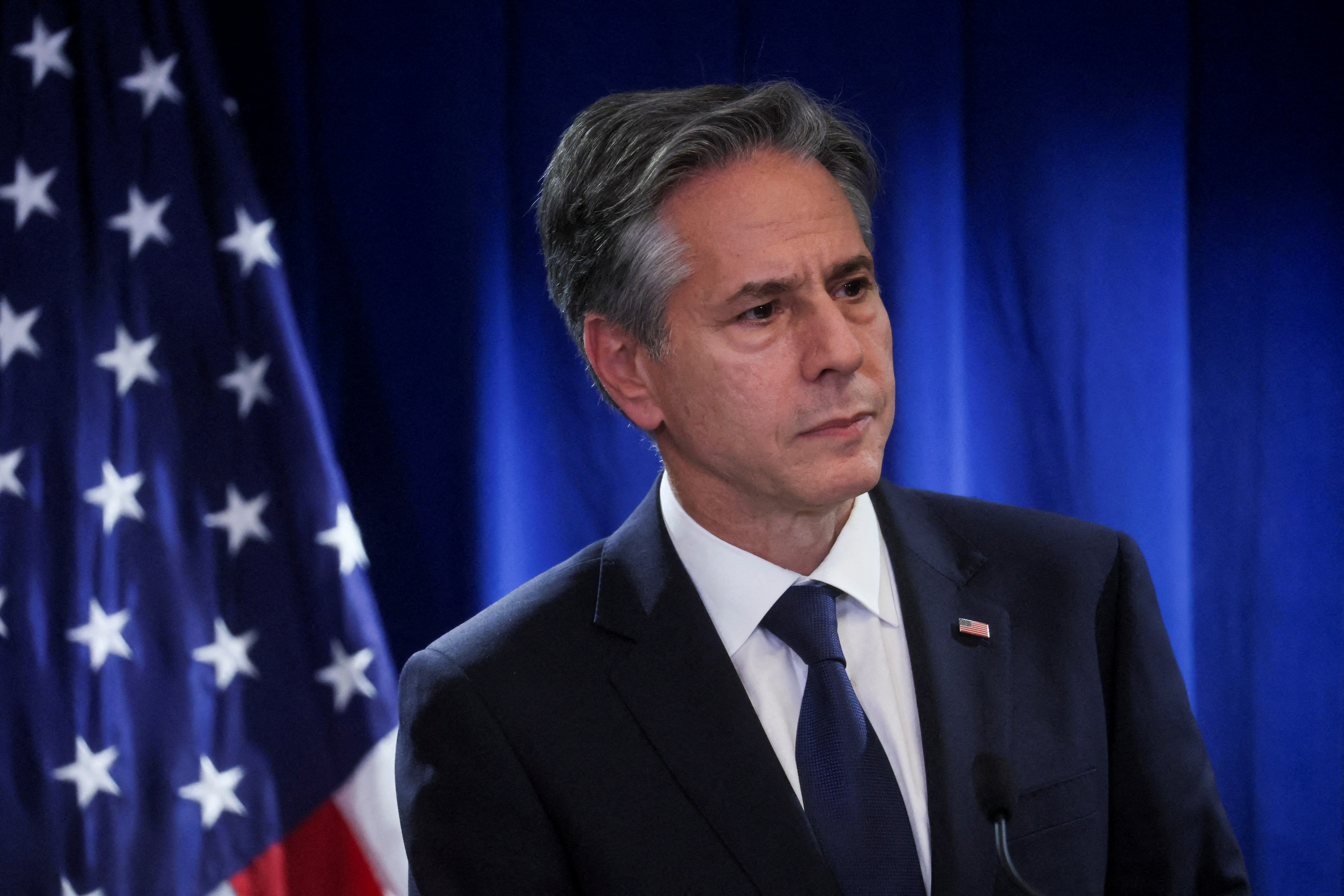
Sign up here.
Reporting by Eduardo Baptista; Writing by Bernard Orr; Editing by Muralikumar Anantharaman and Tom Hogue
Our Standards: The Thomson Reuters Trust Principles. New Tab , opens new tab
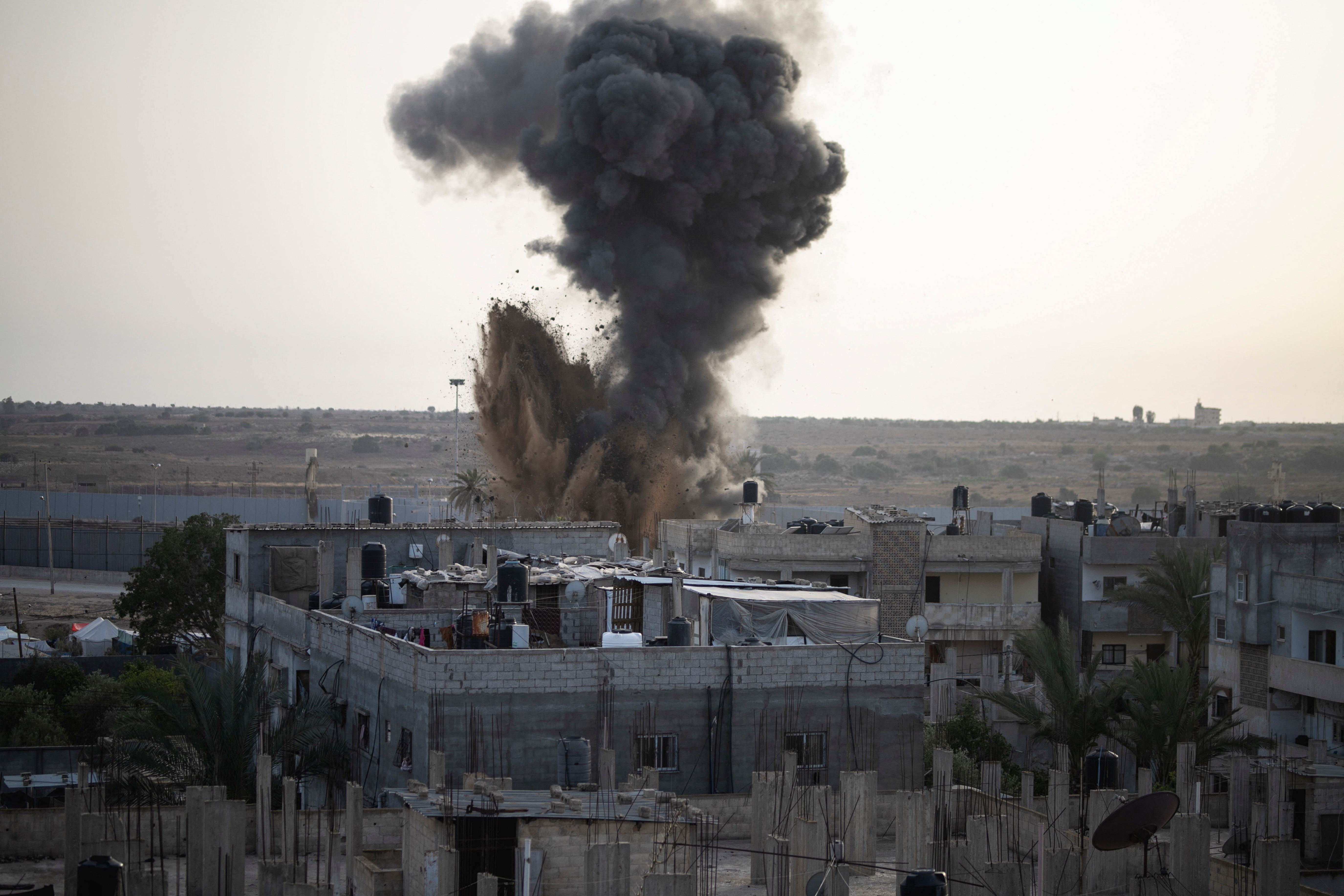
World Chevron
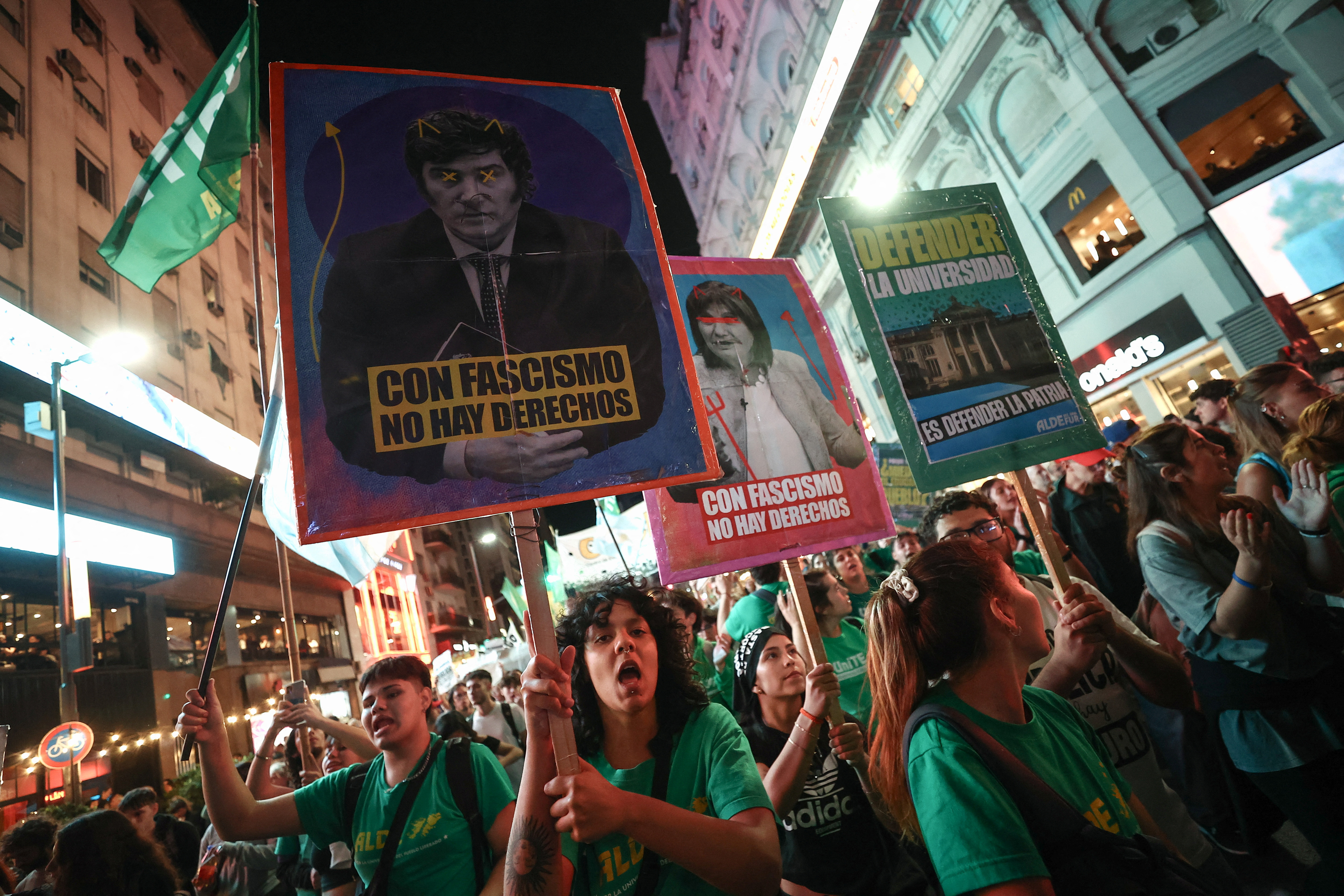
Argentina's Milei faces biggest protest yet as students march over budget cuts
Hundreds of thousands of Argentines took to the streets of Buenos Aires on Tuesday in an anti-government march against budget cuts to public universities, the biggest protest yet against President Javier Milei's painful austerity measures.
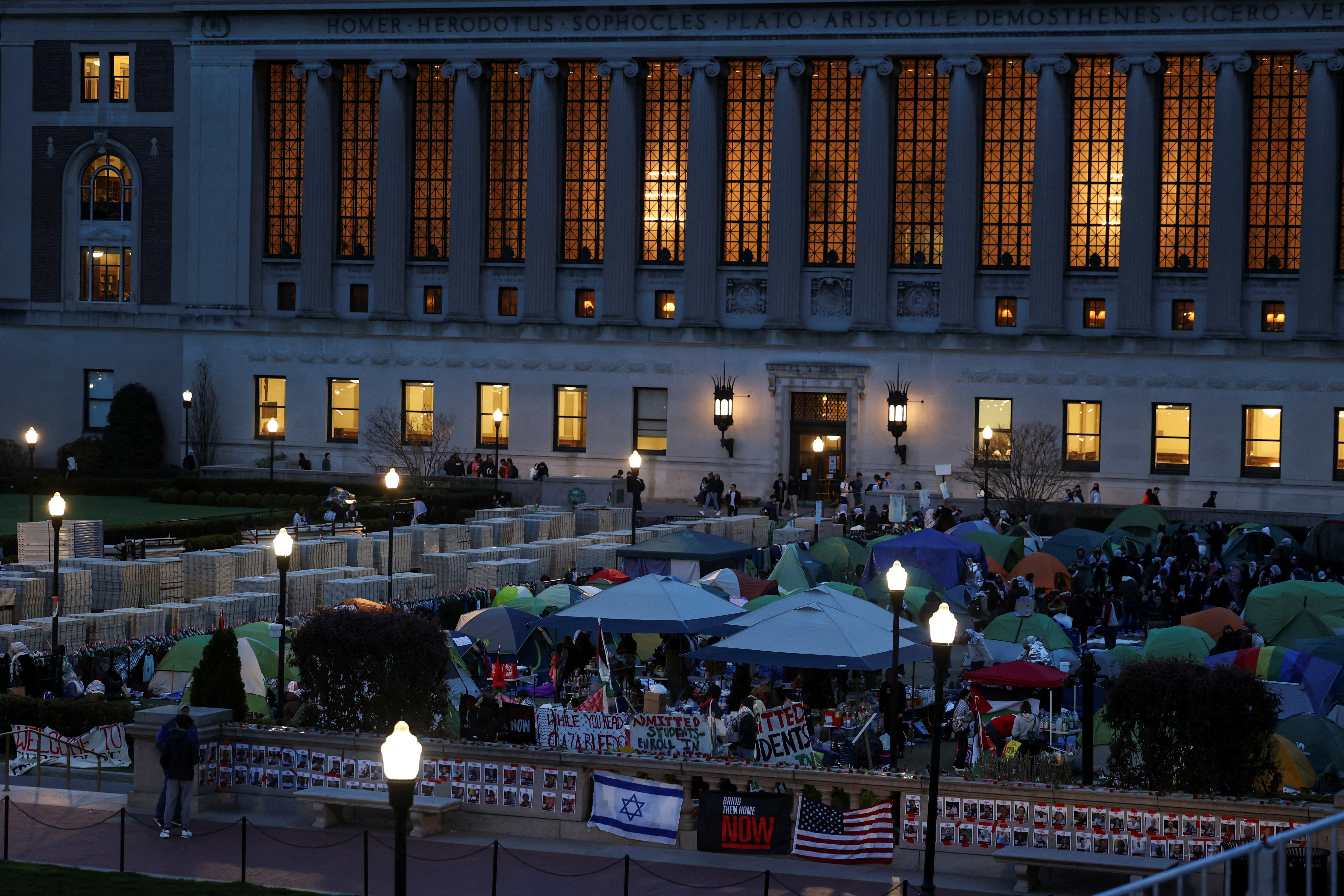
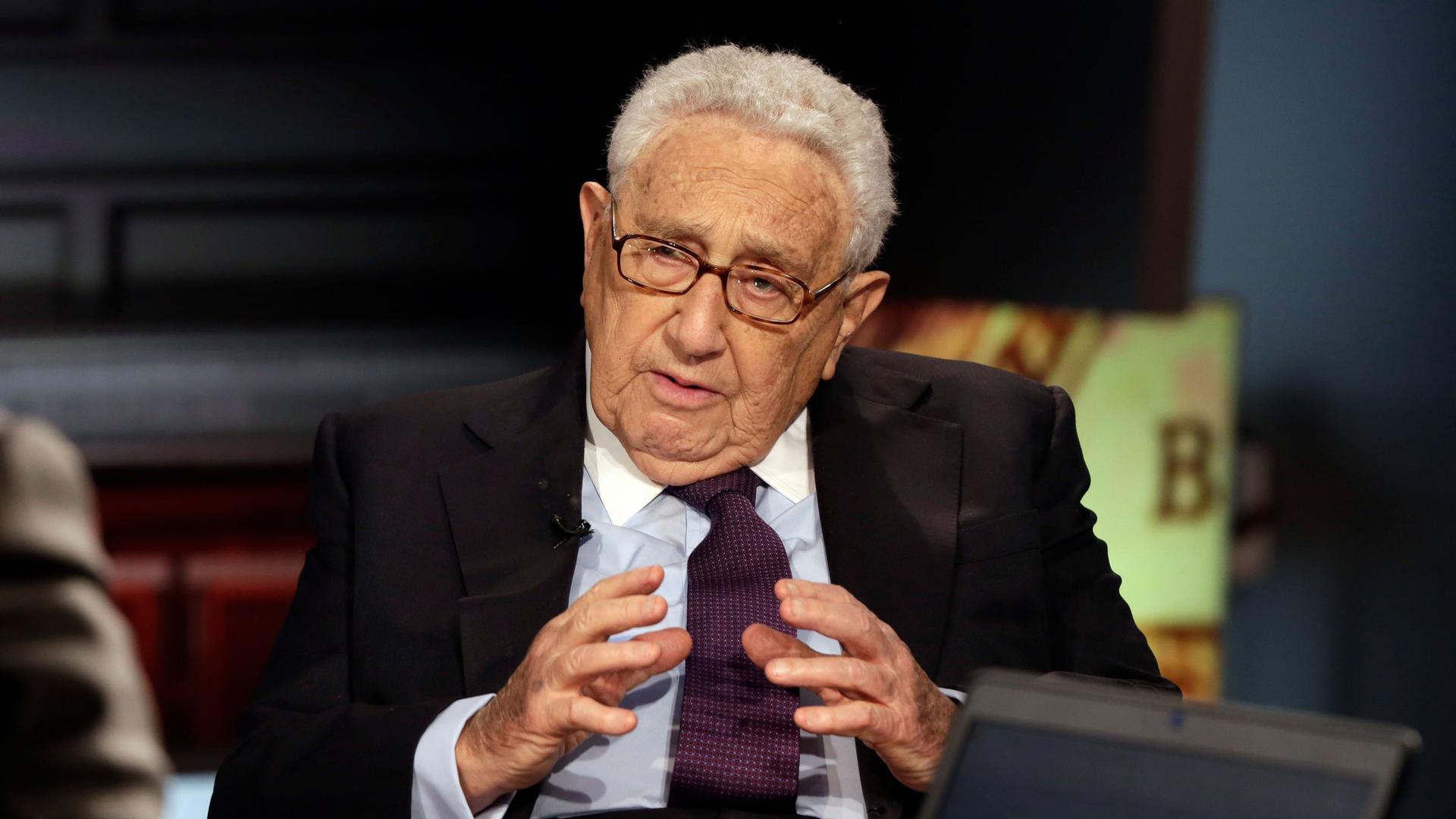
Henry Kissinger leaves lasting — and controversial — foreign policy legacy
Few American statesmen have been as celebrated and as hated as Henry Kissinger, described as a “key architect of US foreign policy.” He died on Wednesday at the age of 100.
- By Sarah Birnbaum
Former US Secretary of State Henry Kissinger is interviewed by Neil Cavuto on his “Cavuto Coast to Coast” program on the Fox Business Network, June 5, 2015, in New York. Kissinger, the diplomat with the thick glasses and gravelly voice who dominated foreign policy as the United States extricated itself from Vietnam and broke down barriers with China, died Wednesday, Nov. 29, 2023. He was 100.
To his fans, Henry Kissinger’s diplomatic achievements were amazing.
Kissinger is credited with opening up the United States up to China in 1971, easing hostilities with the Soviet Union in 1972, ending the Vietnam War in 1973. But to his critics, Kissinger will be remembered for secret bombings in Indochina, plotting coups and supporting military juntas from Pakistan to East Timor to Chile.
Few American statesmen have been as celebrated — and as hated — as Henry Kissinger. He died on Wednesday, Nov. 29, at the age of 100.
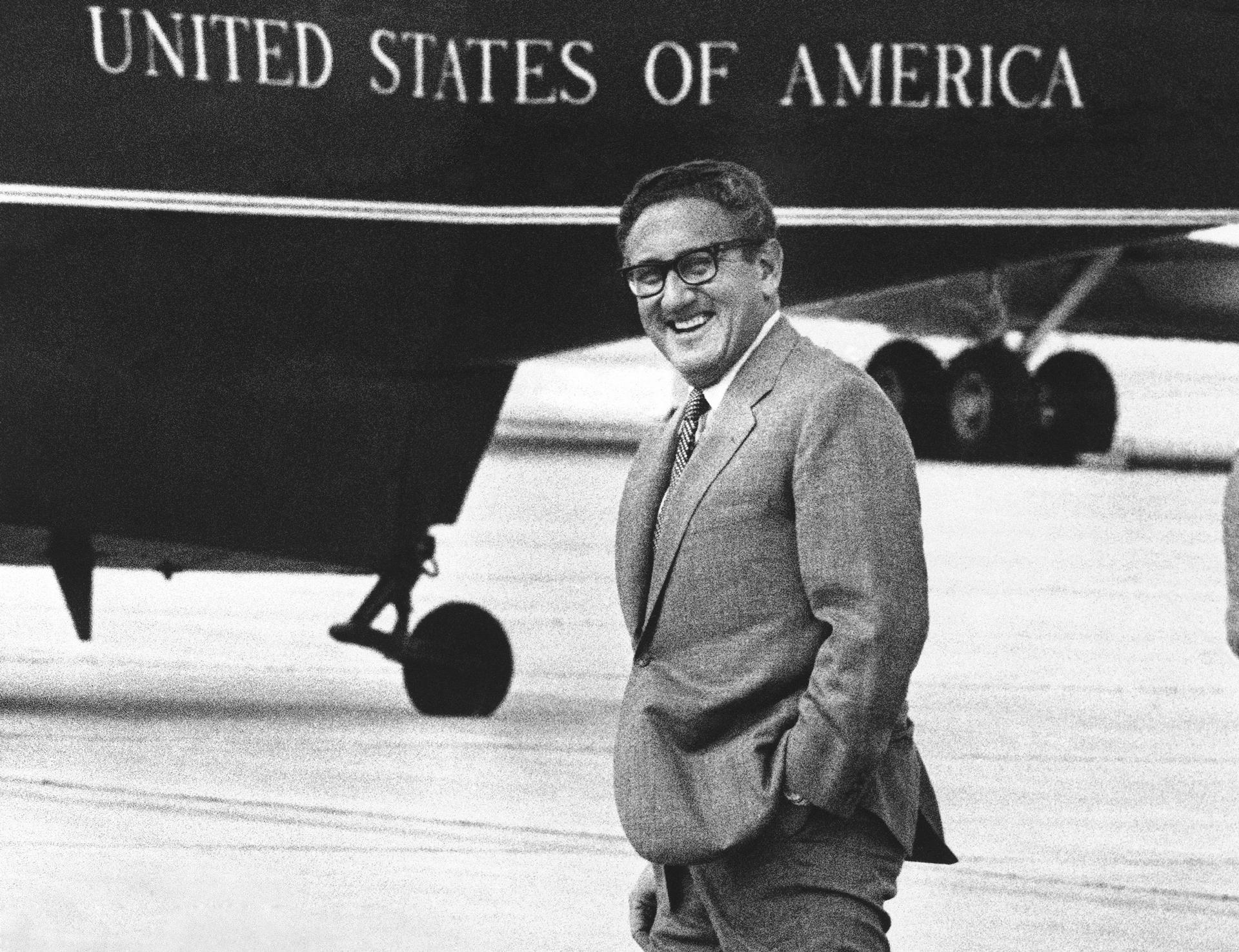
Heinz Kissinger was born in 1923 to an observant Jewish family and in the German city of Firth. His family fled the Nazis in 1938, settling in New York City. Heinz became Henry, but he never lost his thick German accent. He spent his late teens studying and working part time in a shaving brush factory.
In 1942, Kissinger was drafted into the US Army and sent to Germany, where he did counterintelligence work and helped to liberate Ahlem concentration camp in 1945.
After the war, he returned to his hometown and learned that most of the 3,000 members of the Jewish community there had been slaughtered, including members of his own family. Kissinger didn’t usually speak about the Holocaust and the impact it had on him, but he alluded to it in a 1982 interview with the BBC:
“Consciousness that societies can take a very evil turn. This separates me from many Americans who have never seen it, can’t imagine it,” he said.
Stephen Walt, a political scientist at the Harvard Kennedy School of Government, said this made Kissinger hypervigilant. “I think you would come away from that, as many people did — not just Kissinger — with a sense that one had to be eternally watchful, that the wolf was always at the door.”
Walt added that Kissinger held a deeply pessimistic — perhaps even slightly paranoid — view of the world. “He was willing to overlook moral considerations for the sake of preserving order,” Walt said.
In 1947, Kissinger enrolled at Harvard on the GI Bill. He became a professor there in 1957, and in 1968, Richard Nixon tapped him to be his national security adviser.
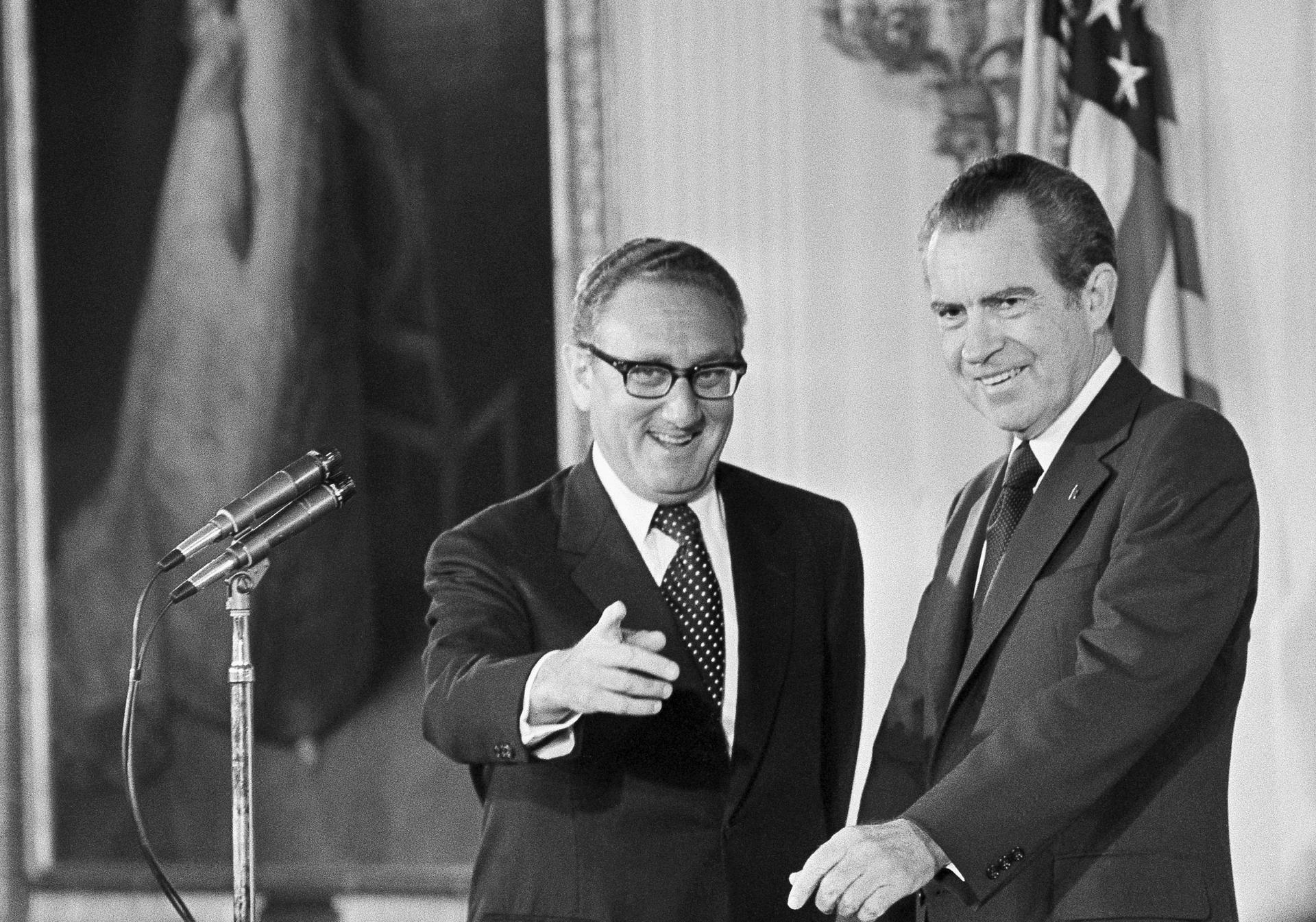
Nixon described him as one of the world’s most “major scholars” of foreign policy at the time. By this point, Kissinger had formed a theory of world affairs, a foreign policy doctrine called realism.
“Kissinger believed, I think, largely, that you deal with the world as it is, not as you wish it to be or as you are trying to reconstruct it,” said Thomas Schwartz, the author of “Henry Kissinger and American Power: A Political Biography.”
“In that sense, he was far more willing to deal with the communist powers that existed, the Soviet Union and China,” Schwartz said.
When Nixon and Kissinger came into office, the US and China hadn’t spoken in decades, according to Schwartz.
“China in many respects was what we would now call a rogue state, a country we had no relations with. We thought it was illegitimate. We recognized the government on Taiwan as the real legal government of China, which was basically a very ideological position to take,” Schwartz explained.
This is where Kissinger’s realism came into play. Kissinger recognized that the Chinese government commanded power and control over an enormous country and that it had to be brought into the international system, Schwartz explained.
At the time, China and the Soviet Union were bitter enemies. By the 1960s, Kissinger and Nixon realized they could pit China against the Soviet Union and create a balance of power in the region. Kissinger went on a secret mission to China in 1971. Nixon followed with a highly public visit in 1972, setting in motion the greatest diplomatic coup of the age — and arguably concluded the Cold War in East Asia.
But Kissinger’s realism found a darker expression in Vietnam.
Back in 1968, when Richard Nixon was running for president, he made his top foreign policy priority to bring “an honorable end” to the war in Vietnam.
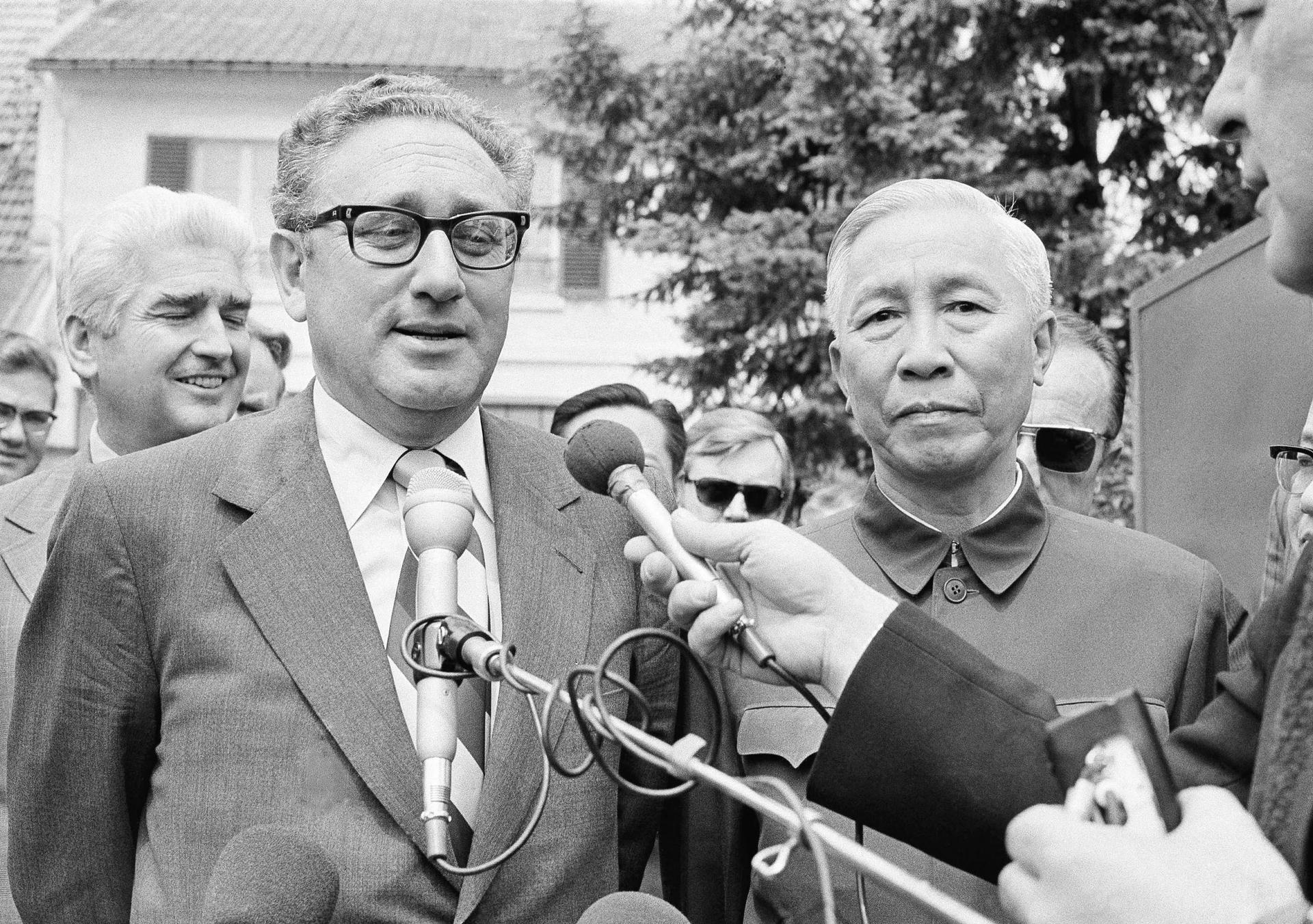
Once elected, he continued to talk about peace with honor. But in private, Nixon and Kissinger conspired to prolong the war. They wanted to inflict enough damage on the North Vietnamese to get more concessions during peace negotiations.
“Kissinger’s great fear was that if anyone ever thought the United States was weakening, they would abandon Washington,” professor Stephen Walt said. “They would realign with the communist world, and the United States would end up isolated and alone.”
In 1969, Nixon and Kissinger expanded the war into Cambodia and then lied about it to the American people. They directed a bombing campaign in Cambodia that killed an estimated 100,000 civilians and opened the door to the genocidal rule of the Khmer Rouge.
It was this and Kissinger’s support of a military coup in Chile that led to the loathing of Henry Kissinger, especially on the left. Most famously, in 2000, one polemicist Christopher Hitchens wrote a book called “The Trial of Henry Kissinger,” accusing him of war crimes and crimes against humanity.
And this notion of Kissinger as a “war criminal” stuck, said Barbara Keys, who studies Henry Kissinger’s legacy.
“This whole ‘war criminal’ thing stuck to Kissinger, partly because he seemed particularly callous. There was never any regret for the many, many people who died in the course of the policies that he advocated and urged Nixon and later Ford to pursue,” said Keys, who is a history professor at Durham University in the United Kingdom.
But over time, Keys said, Kissinger’s notoriety faded and his star rose.
“There is a moment when Kissinger’s reputation is definitely at its lowest, but because it’s been so high, it only takes a few dents and then it kind of rebounds,” she said.
In the final decades of his life, Kissinger continued to advise companies, governments and the public at large. He opined on world events on national TV past his 100th birthday. He was a sought-after voice on everything from 9/11 to the so-called Arab Spring to the war in Ukraine.
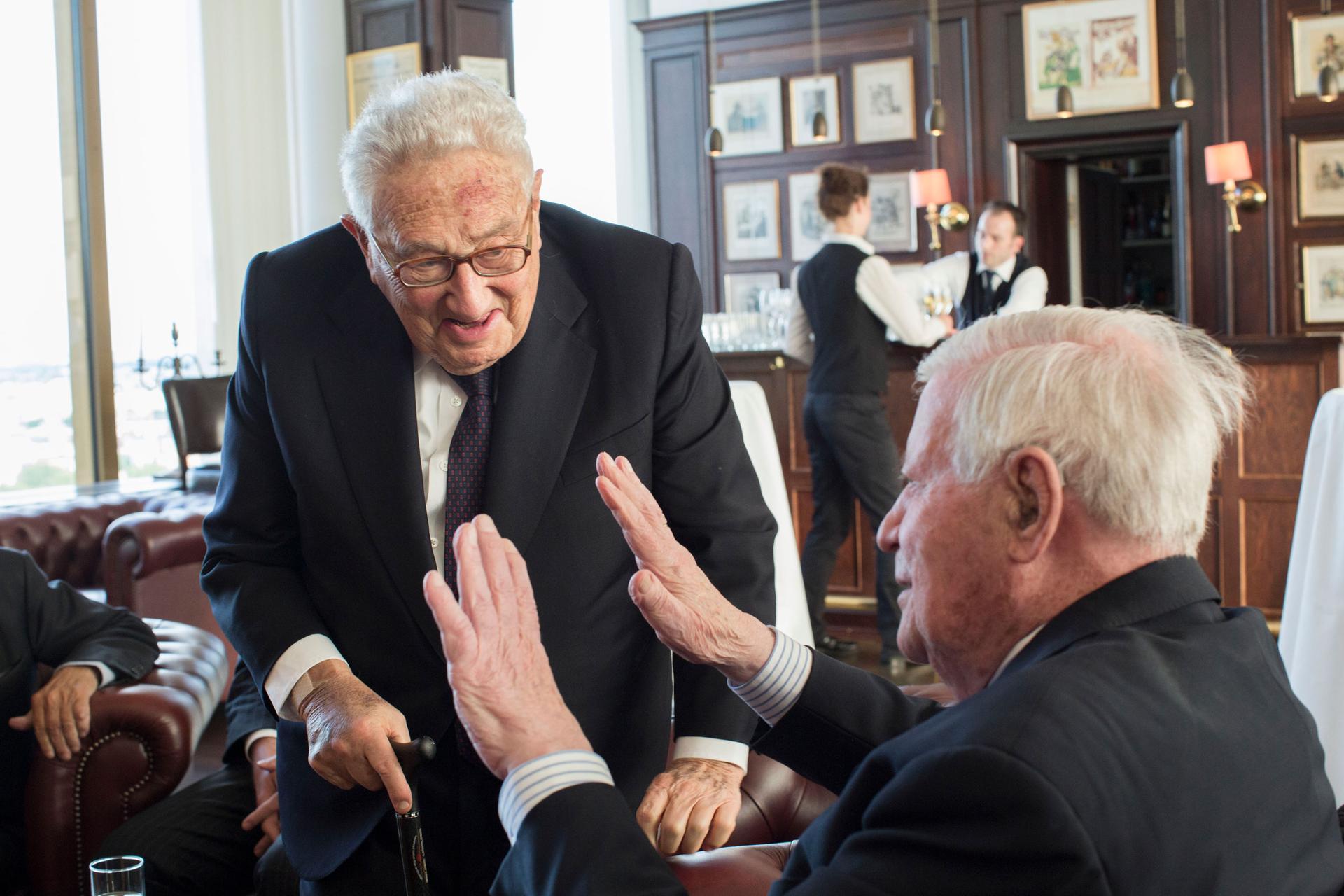
Kissinger was still offering commentary as recently as seven weeks ago, just after Hamas’s deadly attack on Israel.
Stephen Walt said no one has ever worked harder or longer to acquire, build and sustain influence than Henry Kissinger, who continued to publish influential books on foreign policy well into his 90s.
“He also was undoubtedly the most successful networker we’ve seen in the past century [with an] enormous Rolodex, an enormous array of friends, contacts. He simply outworked out, competed, outmaneuvered out, charmed just about anybody else,” Walt said.
And as a result, scholars, pundits, activists and foreign policy buffs will continue to examine and debate Henry Kissinger’s legacy for many years to come.
Sign up for The Top of the World, delivered to your inbox every weekday morning.
Former US secretary of state Henry Kissinger dies at 100
Henry Kissinger, a controversial Nobel Peace Prize winner and diplomatic powerhouse whose service under two presidents left an indelible mark on US foreign policy, died on Wednesday at age 100, Kissinger Associates Inc said in a statement. He died at his home in Connecticut.
Issued on: 30/11/2023 - 02:50
Kissinger had been active past his centenary, attending meetings in the White House , publishing a book on leadership styles, and testifying before a Senate committee about the nuclear threat posed by North Korea . In July 2023 he made a surprise visit to Beijing to meet Chinese President Xi Jinping .
In the 1970s, he had a hand in many of the epoch-changing global events of the decade while serving as secretary of state under Republican President Richard Nixon . The German-born Jewish refugee's efforts led to the diplomatic opening of China , landmark US-Soviet arms control talks, expanded ties between Israel and its Arab neighbours, and the Paris Peace Accords with North Vietnam.
Kissinger's reign as the prime architect of US foreign policy waned with Nixon's resignation in 1974. Still, he continued to be a diplomatic force under President Gerald Ford and to offer strong opinions throughout the rest of his life.
While many hailed Kissinger for his brilliance and broad experience, others branded him a war criminal for his support for anti-communist dictatorships, especially in Latin America. In his latter years, his travels were circumscribed by efforts by other nations to arrest or question him about past US foreign policy.
His 1973 Peace Prize - awarded jointly to North Vietnam's Le Duc Tho, who would decline it - was one of the most controversial ever. Two members of the Nobel committee resigned over the selection and questions arose about the US secret bombing of Cambodia .
Ford called Kissinger a "super secretary of state" but also noted his prickliness and self assurance, which critics were more likely to call paranoia and egotism. Even Ford said, "Henry in his mind never made a mistake."
"He had the thinnest skin of any public figure I ever knew," Ford said in an interview shortly before his death in 2006.
With his dour expression and gravelly, German-accented voice, Kissinger was hardly a rock star but had an image as a ladies' man, squiring starlets around Washington and New York in his bachelor days. Power, he said, was the ultimate aphrodisiac.
Voluble on policy, Kissinger was reticent on personal matters, although he once told a journalist he saw himself as a cowboy hero, riding off alone.
Harvard faculty
Heinz Alfred Kissinger was born in Furth, Germany, on May 27, 1923, and moved to the United States with his family in 1938 before the Nazi campaign to exterminate European Jews.
Anglicising his name to Henry, Kissinger became a naturalised US citizen in 1943, served in the Army in Europe in World War Two, and went to Harvard University on scholarship, earning a master's degree in 1952 and a doctorate in 1954. He was on Harvard's faculty for the next 17 years.
During much of that time, Kissinger served as a consultant to government agencies, including in 1967 when he acted as an intermediary for the State Department in Vietnam. He used his connections with President Lyndon Johnson's administration to pass on information about peace negotiations to the Nixon camp.
When Nixon's pledge to end the Vietnam War won him the 1968 presidential election, he brought Kissinger to the White House as national security adviser.
But the process of "Vietnamization" - shifting the burden of the war from the half-million US forces to the South Vietnamese - was long and bloody, punctuated by massive US bombing of North Vietnam, the mining of the North's harbors, and the bombing of Cambodia.
Kissinger declared in 1972 that "peace is at hand" in Vietnam but the Paris Peace Accords reached in January 1973 were little more than a prelude to the final Communist takeover of the South two years later.
In 1973, in addition to his role as national security adviser, Kissinger was named secretary of state - giving him unchallenged authority in foreign affairs.
An intensifying Arab-Israeli conflict launched Kissinger on his first so-called "shuttle" mission, a brand of highly personal, high-pressure diplomacy for which he became famous.
Thirty-two days spent shuttling between Jerusalem and Damascus helped Kissinger forge a long-lasting disengagement agreement between Israel and Syria in the Israeli-occupied Golan Heights .
In an effort to diminish Soviet influence, Kissinger reached out to its chief communist rival, China, and made two trips there, including a secret one to meet with Premier Zhou Enlai. The result was Nixon's historic summit in Beijing with Chairman Mao Zedong and the eventual formalisation of relations between the two countries.
Strategic arms accord
The Watergate scandal that forced Nixon to resign barely grazed Kissinger, who was not connected to the cover-up and continued as secretary of state when Ford took office in the summer of 1974. But Ford did replace him as national security adviser in an effort to hear more voices on foreign policy.
Later that year Kissinger went with Ford to Vladivostok in the Soviet Union , where the president met Soviet leader Leonid Brezhnev and agreed to a basic framework for a strategic arms pact. The agreement capped Kissinger's pioneering efforts at detente that led to a relaxing of US-Soviet tensions.
But Kissinger's diplomatic skills had their limits. In 1975, he was faulted for failing to persuade Israel and Egypt to agree to a second-stage disengagement in the Sinai.
And in the India - Pakistan War of 1971, Nixon and Kissinger were heavily criticized for tilting toward Pakistan. Kissinger was heard calling the Indians "bastards" - a remark he later said he regretted.
Like Nixon, he feared the spread of left-wing ideas in the Western hemisphere, and his actions in response were to cause deep suspicion of Washington from many Latin Americans for years to come.
In 1970 he plotted with the CIA on how best to destabilize and overthrow the Marxist but democratically elected Chilean President Salvador Allende, while he said in a memo in the wake of Argentina's bloody coup in 1976 that the military dictators should be encouraged.
Read more Five decades on, Chile still grapples with legacy of Pinochet dictatorship
When Ford lost to Jimmy Carter , a Democrat, in 1976, Kissinger's days in the suites of government power were largely over. The next Republican in the White House, Ronald Reagan, distanced himself from Kissinger, who he viewed as out of step with his conservative constituency.
After leaving government, Kissinger set up a high-priced, high-powered consulting firm in New York, which offered advice to the world's corporate elite. He served on company boards and various foreign policy and security forums, wrote books, and became a regular media commentator on international affairs.
After the Sept. 11, 2001, attacks, President George W. Bush picked Kissinger to head an investigative committee. But outcry from Democrats who saw a conflict of interest with many of his consulting firm's clients forced Kissinger to step down from the post.
Divorced from his first wife, Ann Fleischer, in 1964, he married Nancy Maginnes, an aide to New York Governor Nelson Rockefeller, in 1974. He had two children by his first wife.
Daily newsletter Receive essential international news every morning
Take international news everywhere with you! Download the France 24 app
- US politics
- Richard Nixon
- Soviet Union
- Nobel Prize
- Republican Party
The content you requested does not exist or is not available anymore.
- Skip to main content
- Keyboard shortcuts for audio player
Author Interviews
Technology and disinformation places u.s. in multiple cold wars, author argues.

Christopher Intagliata
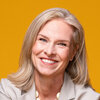
Mary Louise Kelly
NPR's Mary Louise Kelly talks to journalist David Sanger about his new book, New Cold Wars: China's Rise, Russia's Invasion, And America's Struggle To Defend The West.
MARY LOUISE KELLY, HOST:
The early pages of David Sanger's new book contain the following scene. It's a perfect, white night in Saint Petersburg, Russia, May 2002. Then-U.S. President George W. Bush and then-as-now-Russian President Vladimir Putin and their wives are on a luxury yacht floating down the Neva River. The dinner menu includes black caviar and foie gras, and it is elegantly served, as Sanger tells it, by a brooding man in a dark suit, a man who Sanger learned years later was one Yevgeny Prigozhin, who, of course, last year launched a rebellion, marched his forces on Moscow and then died in a fiery plane crash last August but who, on that starry 2002 night, was merely Putin's chef.
Well, David Sanger can recount these details with authority because he, too, was floating down the Neva River, one of many presidential trips he has covered as a reporter over four decades at The New York Times. It's a career that's given him a front-row seat to, among other things, the end of the Cold War and now to what he sees as the "New Cold Wars." That's the title of his new book, and he's in our studio to tell us about it. Hey there, David.
DAVID SANGER: Great to be back with you, Mary Louise.
KELLY: So the yacht story - I mean, it's a great story. Let's just say that. But aside from that, you use it to remind us that there was a moment when it seemed the Cold War was not just over but that with a little effort, it could be erased from memory, from history. Take us back.
SANGER: That's exactly right. This was one of 24 or 25 meetings between President Bush and President Putin. That's unimaginable today. Joe Biden has met Putin in person as president exactly once.
KELLY: Once in Geneva.
SANGER: That's right.
KELLY: Yeah.
SANGER: I was at that meeting as well.
KELLY: As was I.
SANGER: And I have a funny feeling, as I suspect you do, that may be the one and only.
SANGER: And it's a reminder that, back in 2002, the conversation on that boat was about whether or not Russia might actually join the EU and whether, eventually, it might become a member of NATO, the alliance that had been created to contain the Soviet Union.
KELLY: It's mind-boggling to think that's where we were.
SANGER: It is with NATO, you know, fully engaged in everything but person-to-person combat with the Russians. This is a book about the great shock that came from the discovery that we were wrong not only about Russia but about China, which American officials for decades also believed, for very different reasons, would join Western institutions, the Western economy and that, in both cases, the lure of Western markets would mean that there would be few or no territorial arguments, few or no direct confrontations.
KELLY: Peace and prosperity for all. Instead, we have arrived at "New Cold Wars," the title of your book. It's plural, people will be noticing. Explain.
SANGER: It's plural because in the old Cold War, we had one major adversary, the Soviet Union. And it was primarily just a military contest, although a terrifying and nuclear one. In the new Cold Wars, we have a military confrontation with Russia that's also a disinformation war. In China's case, we have military, economic and technological competition but mostly technological.
KELLY: So let me push you a little bit on this thesis you're advancing that we are in or facing new Cold Wars because I want to look at some of the things that feel quite different. One we've touched on - you're looking not just at a bipolar world but at Russia and China and the dual challenges that that poses. Another difference that gets talked about less but that you take on in the book - the paramount importance of the private sector. You quote a Biden administration cybersecurity advisor who told you it used to be governments that had access to perfect information and that now it's companies. Tell us about the role that Big Tech like Microsoft, Google - that they are playing in defending the U.S. and our allies.
SANGER: A quite critical one. You know, the book opens with the Munich Security Conference in 2022, when European leaders were walking around the weekend before the war broke out, saying, we don't think the Russians are going to do this. Four days later, the war broke out. The early warning or one of the crucial early warnings that the war was about to break out came from Microsoft, which saw attacks mounting from Russian cyber forces on Ukrainian government offices, sent a warning to the White House. And that turned out to be one of the crucial warnings. In the response that Ukraine put together, it happened, effectively, in large part, because of Starlink. And had it not been for...
KELLY: Elon Musk's.
SANGER: ...Elon Musk connecting Ukraine to this network of satellites, the Russians would have succeeded in cutting off the Ukrainian communications. They had taken out a big satellite network that the Ukrainians depended on. So these were only two examples, but they also make us and our allies more dependent on the whims of private companies. There was a moment, of course, famously...
KELLY: Led by private citizens...
KELLY: ...Who don't answer to the U.S. government.
SANGER: That's right. And Musk was a great example when he would not extend Starlink coverage to help the Ukrainians go attack Russian ships off Crimea.
KELLY: I mentioned when we began speaking, David, you've been at the Times for four-plus decades now. You've covered five American presidents...
KELLY: ...And counting back - so starting with Clinton.
SANGER: Yeah. And before that, I was in Japan.
KELLY: Yeah. Does this moment feel less predictable, less settled than others that you have covered?
SANGER: Definitely. There was, in the Cold War, for all of its terrors, something of a predictable cadence. We knew who the single adversary was. We knew who had launch authority over their weapons. We could watch and count their weapons. We are in an age now of proxy wars. We are taking on the Russians in a hot war in which President Biden has given his staff something of contradictory instructions here. One is don't let the Russians win, and the second one is don't start World War III. Both seem like very reasonable objectives, but they're a bit in tension.
The second is we are seeing combinations of power, like the Russians and the Chinese, where we don't understand the dynamics. Of course, what Nixon and Kissinger were trying to do in the mid-'70s, in putting together the relationship with China and opening to China, was to avoid exactly that combination. And now we are seeing the interplay of middle players, Iran and North Korea, but also those standing on the sidelines a bit, like India, which have continued to buy Russian oil and ignore the American- and Western-led sanctions but have not fully signed up with the Russians on the invasion.
KELLY: David Sanger. His new book is "New Cold Wars: China's Rise, Russia's Invasion And America's Struggle To Defend The West." Thank you, David.
SANGER: Thank you, Mary Louise.
(SOUNDBITE OF DAVID AXELROD'S "HOLY THURSDAY")
Copyright © 2024 NPR. All rights reserved. Visit our website terms of use and permissions pages at www.npr.org for further information.
NPR transcripts are created on a rush deadline by an NPR contractor. This text may not be in its final form and may be updated or revised in the future. Accuracy and availability may vary. The authoritative record of NPR’s programming is the audio record.

IMAGES
COMMENTS
Xi met Kissinger at the Diaoyutai State Guesthouse, a diplomatic complex in western Beijing where Kissinger was received during his first visit to China in 1971, state broadcaster CCTV reported.
Beijing often evokes the time when Mr. Kissinger served as secretary of state and helped pave the way for a historic visit to China in 1972 by President Nixon, as an example of a golden era in ...
Noting that Kissinger has just celebrated his 100th birthday and has visited China more than 100 times, Xi said his visit this time is of "special significance."
Kissinger said it was a "great honor" to visit China again, noting that his meeting with Xi at the Diaoyutai State Guesthouse, where many important diplomatic events are held, was the same ...
For China, it was an opportunity to suggest that they would respond better to U.S. policies that harkened back to Kissinger's time. For Kissinger, the visit represents an opportunity to do what ...
The 100-year-old former secretary of state's visit coincides with U.S. climate envoy John F. Kerry's arrival in Beijing — and Kissinger had a much warmer welcome.
The White House on Thursday expressed regret that Henry Kissinger was able to get more of an audience in Beijing than some sitting U.S. officials, after the former top diplomat held talks in China.
Former US Secretary of State Henry Kissinger met China's top diplomat in Beijing on Wednesday following a meeting with the country's US sanctioned defense minister the day before.
Nov. 30, 2023. When Henry Kissinger popped up in an ornate meeting room in Beijing in July with Xi Jinping, China's leader, the episode became the most vivid symbol of the former diplomat and ...
20 Jul 2023. Chinese leader Xi Jinping has welcomed his "old friend", former United States Secretary of State Henry Kissinger, to Beijing. The visit on Thursday came as the US and China have ...
Kissinger, who died Wednesday, Nov. 29, 2023, developed a special relationship with China in the second half of his 100-year-long life. (Ministry of Foreign Affairs of the People's Republic of China via AP, File) BEIJING (AP) — Official China called Henry Kissinger "an old friend.".
Henry Kissinger's trip took place almost 52 years after his secret visit to Beijing in July 1971, which helped to normalise relations between the US and China.
The 100-year-old Kissinger is revered in China for having engineered the opening of relations between the ruling Communist Party and Washington under former President Richard Nixon during the Cold War in the early 1970s. ... Even before Pelosi's visit, the U.S. says China declined or failed to respond to over a dozen requests from the ...
Five years after Mr. Kissinger's visit, China reopened colleges after being effectively closed for a decade. Through hard work and good luck, I was able to enter college and later went to the ...
Thu Jul 20 2023 - 18:22. Chinese president Xi Jinping told Henry Kissinger that "old friends" like him will never be forgotten, striking an easy tone in their meeting in China's capital on ...
Kissinger's visit overlapped with US climate envoy John Kerry's trip to Beijing that ended on Wednesday. Kerry did not meet the Chinese leader, nor did Treasury Secretary Janet Yellen who was ...
After 50 years and 100 trips to China, Kissinger should visit democratic Taiwan by Joseph Bosco, opinion contributor - 07/25/23 10:00 AM ET ... Kissinger's China career started in 1971-1972 when ...
The documents summarized and linked to below detail these efforts which ultimately produced Henry Kissinger's secret trip to Beijing July 9-11, 1971. Kissinger, Nixon's National Security Advisor, flew to Beijing from Pakistan. His meetings there produced an agreement that President Nixon would visit China. Nixon went in February 1972.
August 1, 2023. On 20 July Chinese President Xi Jinping pointed out that Henry Kissinger had recently celebrated his 100th birthday and had visited the People's Republic of China more than a hundred times. The combination of these two "hundreds" makes this time's visit to the People's Republic of China particularly significant.
Kissinger said to Xi: "It is a great privilege to be able to visit China, and it is extraordinarily courteous of you to arrange the meeting in Villa 5 of the state guesthouse where my first ...
President Xi especially noted that Kissinger had visited China over 100 times since 1971 when he helped "break the ice" between Beijing and Washington. Kissinger was a top U.S. diplomat and national security adviser at the White House in the 1970s and played a key role in normalizing China-U.S. ties under former U.S. President Richard Nixon. In ...
The biggest coup was Kissinger's secret visit to Beijing in July 1971 to meet face-to-face with the Chinese leader Chou Enlai. ... Nixon's historic visit to China was the high point of a ...
China's foreign ministry on Thursday welcomed U.S. Secretary of State Antony Blinken's visit to China as tensions rise between the two countries over global trade, regional conflicts and the ...
By the 1960s, Kissinger and Nixon realized they could pit China against the Soviet Union and create a balance of power in the region. Kissinger went on a secret mission to China in 1971. Nixon followed with a highly public visit in 1972, setting in motion the greatest diplomatic coup of the age — and arguably concluded the Cold War in East Asia.
American students need to get back to China. U.S. policymakers can help them by increasing opportunities and funding to do so. Whether or not policymakers see eye-to-eye on China policy, all should…
Henry Kissinger, a controversial Nobel Peace Prize winner and diplomatic powerhouse whose service under two presidents left an indelible mark on US foreign policy, died on Wednesday at age 100 ...
Of course, what Nixon and Kissinger were trying to do in the mid-'70s, in putting together the relationship with China and opening to China, was to avoid exactly that combination.
It is his first visit since the German government last year presented its China strategy, which met with criticism from Beijing. Premier Li and a delegation of senior officials visited Berlin in June.
The German leader's visit has underscored trade-related tensions as the European Union and the United States complain that China is competing unfairly through the use of subsidies that have created massive production capacity, particularly for solar panels, electric cars and other green-energy products.. The EU is mulling tariffs to protect its producers against cheaper Chinese electrical ...
During Scholz's recent bilateral visit, the notion of "de-risking" nonetheless hung over discussions, with the EU currently on the defensive regarding Chinese imports. Last year, the Commission ...